entertainers
Paul Newman
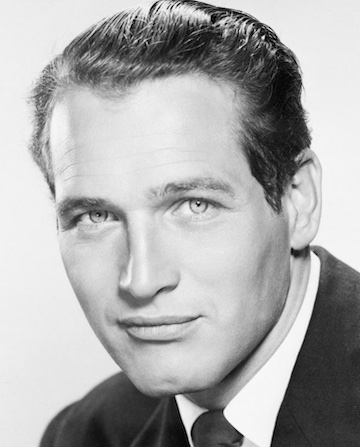
On this date in 1925, actor and philanthropist Paul Newman was born in a suburb of Cleveland, Ohio, to a Catholic mother and a Jewish father. Newman enlisted in the Naval Air Corps but his service was cut short due to color blindness. He served in the Navy in the South Pacific during World War II. Upon his return from the war, Newman enrolled at Kenyon College, Ohio, and received his B.A. in 1949.
He worked in summer stock, married Jackie Witte, with whom he had three children, enrolled at the Yale University grad program in acting, then left it for Broadway. His first Broadway success was playing the lead in “Picnic” (1953). Newman was admitted to the Actor’s Studio, studying “method” acting. His first film, “The Silver Chalice,” came out in 1954 and was a flop. His breakthrough role was portraying boxer Rocky Graziano in “Somebody Up There Likes Me” (1956). He met actress Joanne Woodward while making “The Long, Hot Summer” (1957) and married her in 1958. They had three daughters.
Newman was nominated often for “best actor” Oscars for such movie classics as: “Cat on a Hot Tin Roof” (1958), “The Hustler” (1961), “Hud” (1963) and “Cool Hand Luke” (1967). He won for “The Color of Money” (1987). Other films include “Butch Cassidy and the Sundance Kid” and “The Sting,” in which he was paired with Robert Redford.
Newman founded “Newman’s Own” line of food, donating much of the proceeds to charity. Newman was listed on the website of the Unitarian Universalists, which is creedless, as one of its famous members. According to Who’s Who in Hell, edited by Warren Allen Smith, Newman once told TV interviewer Barbara Walters that he didn’t believe in an afterlife. (D. 2008)
“Although never overtly religious, Newman said he chose to think of himself as Jewish because it was ‘more challenging.’ ”
— Associated Press obituary (Sept. 27, 2008)
Henry Rollins
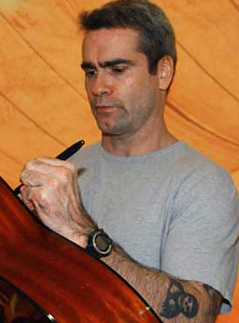
On this date in 1961, Henry Rollins (né Henry Lawrence Garfield) was born in Washington, D.C. After high school, Rollins worked on the crew of several D.C. punk bands including Teen Idles. He sometimes filled in for absent lead singers. By 1980, talk of his vocal ability had spread around the D.C. punk rock scene. Rollins became the lead vocalist and lyricist of a band called State of Alert. He was promoted to manager of an ice cream store in Georgetown, which he used to fund his musical hobby.
Rollins became a huge fan of the punk band Black Flag, exchanging letters with its bassist and attending as many concerts as he could and even putting the band up in his parents’ home during an East Coast tour. The band was won over by Rollins’ vocal talent and stage presence. He joined Black Flag as its new frontman and lead singer, quit his manager position, changed his name from Garfield to Rollins and moved to Los Angeles.
Black Flag disbanded in 1986, but Rollins was already touring successfully as a solo artist. He released three solo albums in 1987: Hot Animal Machine, with guitarist Chris Haskett, Drive by Shooting and Big Ugly Mouth. In that same year, Rollins assembled an alternative hard rock group called Rollins Band, active until 2003. Their first chart-topping album was The End of Silence (1992). In 2000, Rollins Band was 47 on VH1’s list of 100 Greatest Artists of Hard Rock. Rollins won a Grammy Award in 1995 for Best Spoken Word Album for Get in the Van: On the Road with Black Flag, a recording of Rollins reading his memoir of the same title.
Rollins has appeared on numerous television series, including MTV’s “Oddville,” (1997), “Batman Beyond” (2001), “The Henry Rollins Show” (2006-2007) and “Sons of Anarchy” (2009). He has authored several books, including a trilogy based on his travels called Black Coffee Blues (1992). He has also appeared in over a dozen films, including “Heat” (1995) with Al Pacino, “Lost Highway” (1997) with Bill Pullman, “Jackass The Movie” (2002) and “Jackass The Movie Two” (2006). Rollins is an activist for gay and human rights. An outspoken war critic, he is strongly supportive of troops.
Rollins said on SIRIUS XM radio: “I’m sure there’s gay people who are Catholics. How do they reconcile that? How do they reconcile that somewhere in the paperwork their religion doesn’t like them?” (“Ron & Fez on The Virus,” video, date unknown). On the same show, Rollins reacted to the expulsion of the child of two lesbians from a Catholic preschool: “When you encounter that kind of hatred, leave. … I was happy that the kid got expelled because maybe the kid has a chance now. They can be put into a place without discrimination, that doesn’t eventually make part of the curriculum to exclude people, like homosexuals.”
Rollins occasionally used “The Henry Rollins Show” to passionately critique religion: “Christian fundamentalists see their fingers being pulled off the steering wheel as their oppressive shackles are more and more being seen as fear-based nonsense” (video, date unknown). Friends with actor William Shatner, he contributed to the mostly secular “Shatner Claus: The Christmas Album” in 2018.
PHOTO: Rollins signing an airman’s guitar during a 2003 USO tour in Iraq.
“In the theory of evolution there is no talk of God and no Bibles are used. They’re not looking for higher powers, extraterrestrials, or anything else that could be found in the science fiction section, because they are not dealing with fiction.”
— Henry Rollins, on an episode of "The Henry Rollins Show” (date unknown)
Teller
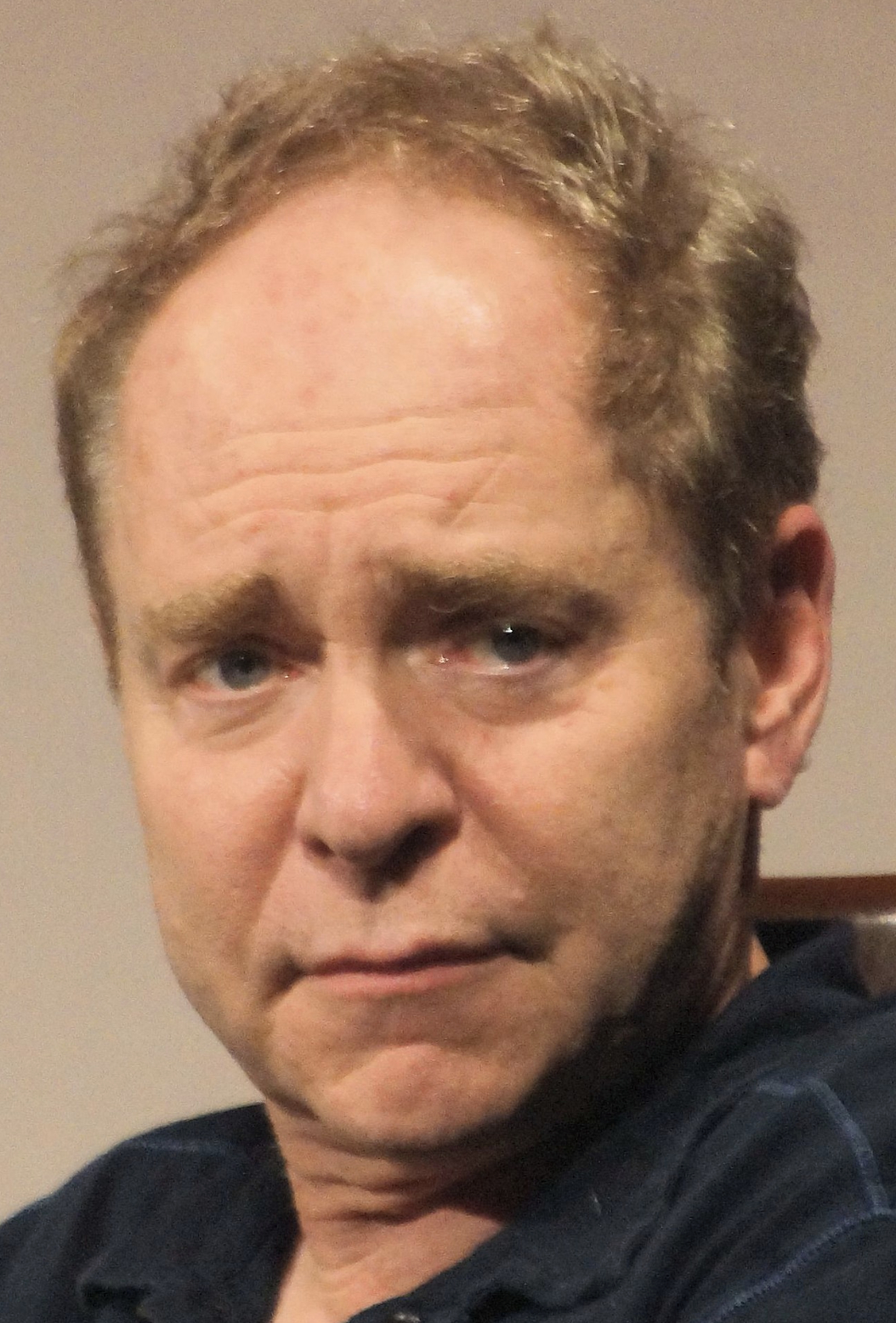
On this date in 1948, Teller was born Raymond Joseph Teller in Philadelphia, Pa. (Teller changed his name legally to his stage moniker, “Teller,” and has a U.S. passport issued with a single name.) Teller graduated Amherst College in 1969 and taught English and Latin in New Jersey before leaving to work as a magician in 1974. Teller and fellow magician Penn Jillette have been collaborators since 1975, at first as two of three members of The Asparagus Valley Cultural Society.
Since 1981, the two have performed exclusively as Penn & Teller. Teller is the “silent” half of the duo, performing stunts and magic tricks while Penn talks. He is so well known for his silence that video of him speaking is considered a novelty. According to an older version of Penn & Teller’s website, Teller began performing silently at fraternity parties because he found it was the best way to get party attendees to actually pay attention to his magic tricks.
Since 2001, Penn & Teller have performed their magic act at the Rio in Las Vegas, although they do occasionally continue to tour. In addition, they have appeared in several television specials as well as having created, produced and starred in two television shows, “Penn & Teller: Bullshit!” which aired on Showtime from 2003 to 2010, and “Penn & Teller Tell A Lie,” which aired on the Discovery Channel beginning in 2011. They started another hit TV contest show for aspiring magicians titled “Fool Us” in 2011 which returned in 2015 and ran for several years.
“Bullshit!” focused on challenging and debunking beliefs that are not questioned by those who hold them, including many religious views. “Penn & Teller Tell A Lie” focuses on portraying several true but astonishing facts as well as one urban legend. (The lies were revealed at the end of the episode.) In 2014 he and Aaron Posner adapted and co-directed a critically acclaimed and commercially successful production of Shakespeare’s “The Tempest,” featuring songs by Tom Waits, at the American Repertory Theatre in Cambridge, Mass. Iterations of the production followed in Chicago, Los Angeles and Las Vegas. They followed that up with a Shakespearean “Macbeth” adaptation in Chicago in 2018.
Teller describes himself as a skeptic and atheist, and is a fellow of the libertarian Cato Institute. He has collaborated with Jillette and others to write books about magic and has written a biography of his father, “When I’m Dead, All This Will Be Yours!” Joe Teller: A Portrait by His Kid (2000). In 2003, Penn & Teller were the recipients of FFRF’s Emperor Has No Clothes Award.
“It’s fair to say that the Bible contains equal amounts of fact, history, and pizza.”
— “The Bible: Fact or Fiction?” Season 2, Episode 6 of “Penn & Teller: Bullshit!” May 26, 2004
Robert Altman
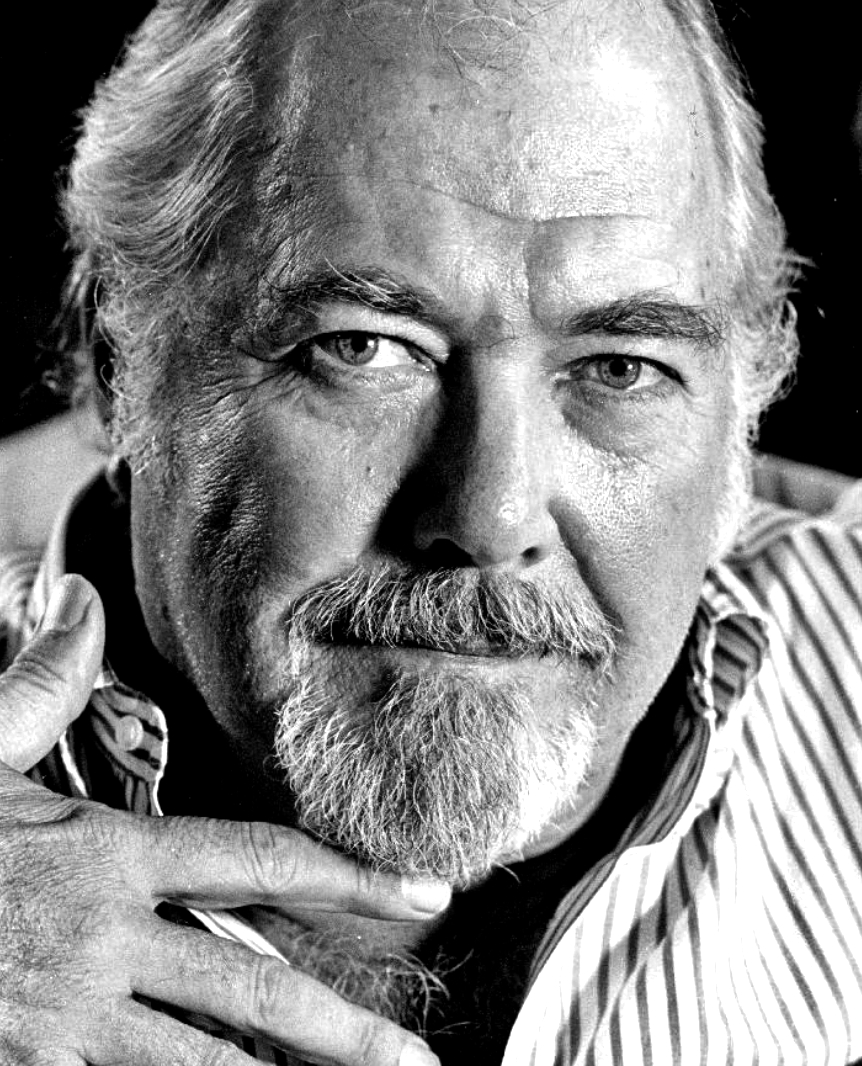
On this date in 1925, brilliant film director and screenwriter Robert Bernard Altman was born in Kansas City, Mo., into a Catholic family. Altman’s mother, a Christian Scientist who converted to Catholicism, and father, a wealthy insurance salesman, sent their eldest son to Catholic school. He was enrolled at age 16 in military school, and enlisted in the Army Air Force in 1945. Altman co-piloted B-24 bombers in World War II and participated in 46 missions over the Dutch East Indies.
Enthralled by film, Altman moved to Hollywood after his military discharge. He acted in the film “The Secret Life of Walter Mitty” (1947) and co-wrote the screenplay of a film called “Bodyguard” (1948). Struggling for a breakthrough in Hollywood, Altman returned to Kansas City and was hired by a local film company as a writer in 1950.
He began directing short films for the company and made his silver screen directorial debut with “The Delinquents” (1957). That year he returned to Hollywood and began directing the popular television series “Alfred Hitchcock Presents” (1957-58). “MASH” (1970) was his first cinematic success as a Hollywood director.
In his illustrious career as screenwriter, director and producer, Altman was nominated for seven Academy Awards: 1971 Best Director for “MASH,” 1976 Best Director and Best Picture for “Nashville,” 1993 Best Director for “The Player,” 1994 Best Director for “Short Cuts,” and 2002 Best Picture and Best Director for “Gosford Park.” He won a prestigious “Honorary Award” from the Academy in early 2006 for “a career that has repeatedly reinvented the art form and inspired filmmakers and audiences alike.”
Julie Christie, an actress who was directed by Altman in the memorable “McCabe & Mrs. Miller” (1971), noted, “Robert’s cool is part of his belief system. He won’t be bound by rules and he doesn’t expect you to be, either. … And he doesn’t expect people to be sheep” (The Guardian, April 30, 2004). Altman died at age 81 of complications from leukemia. He was survived by Kathryn Reed, his wife of 47 years, their two children and three children from two previous marriages. D. 2006.
“The day he left home [to fight in World War II], he remembers his mother and two sisters putting him on the train with the words, ‘Thank God you’ve got your religion. You’re going to need it now.’ From that day, he says, he never went to Mass again. ‘At home, you had to. Then, when I left the family, I stopped.’ “
— Journalist Suzie Mackenzie, remarking on and quoting Altman in a profile in The Guardian (April 30, 2004)
Javier Bardem
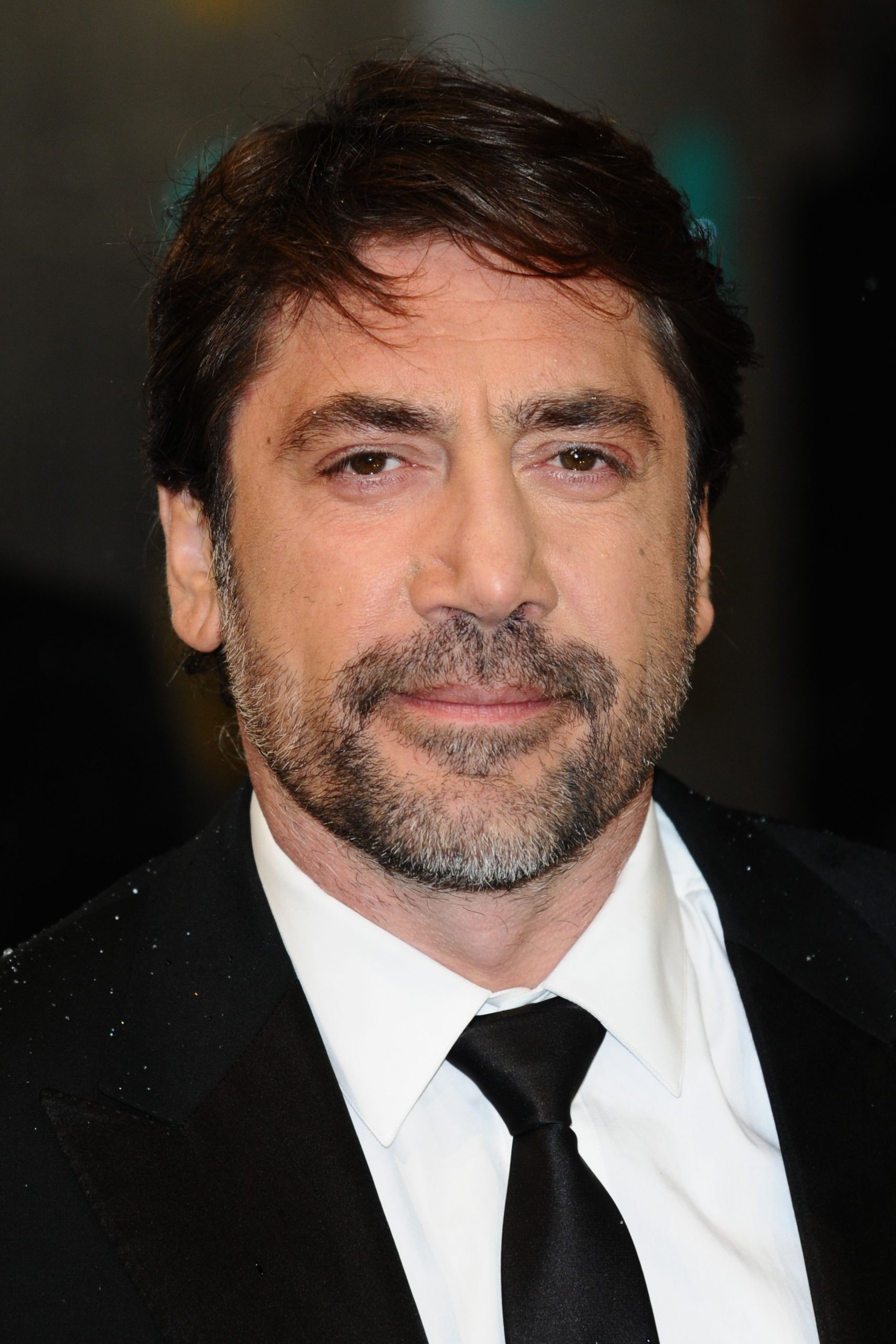
On this date in 1969, Javier Ángel Encinas Bardem was born in Las Palmas de Gran Canaria in the Canary Islands, Spain. Bardem grew up in a family of actors (except his father, who was a businessman). He began acting at age 6 in the Spanish television series “El Pícaro” (1974). As a teen he acted in television and played rugby for Spain’s national team. His breakthrough role was his Oscar-nominated portrayal of Cuban poet and novelist Reinaldo Arenas in “Before Night Falls” (2000).
Exceptional performances followed in “The Dancer Upstairs” (2002), directed by John Malkovich, “Collateral” (2004), “Goya’s Ghosts” (2006), also starring Natalie Portman, the Coen brothers’ “No Country for Old Men” (2007), “Love in the Time of Cholera” (2007), Woody Allen’s “Vicky Christina Barcelona” (2008), “Biutiful” (2010) and “Eat Pray Love” (2010). He won the 2008 Academy Award for Best Supporting Actor for his performance in “No Country for Old Men” and was nominated in 2011 in the Best Actor category for “Biutiful.”
In “Sons of the Clouds: The Last Colony” (2012), he demonstrated the suffering of the Sahrawi people in refugee camps. Other roles include 2017’s “Pirates of the Caribbean: Dead Men Tell No Tales,” the horror film “Mother!” (2017) and with his spouse Penélope Cruz in “Everybody Knows” in 2018. He was cast as Stilgar in “Dune” (2021).
An article in The Independent (U.K.) refers to Bardem’s turning point with religion: “Now an atheist, he experienced the loss of his father when he was 25. ‘I wasn’t a very committed Catholic before, but when that happened it suddenly all felt so obvious: I now believe religion is our attempt to find an explanation; to feel more protected’ “ (“People watch me. I feel absurd,” Jan. 16, 2011).
After the 2005 legalization of same sex marriage in Spain, Bardem stated if he were a homosexual he would “get married tomorrow just to fuck with the church.” He and Cruz married in 2010 and have two children.
“I always say, ‘I don’t believe in God, I believe in Al Pacino’ — and that’s true.”
— Bardem, Time magazine, “10 questions for Javier Bardem" (Aug. 14, 2008)
Harry Belafonte
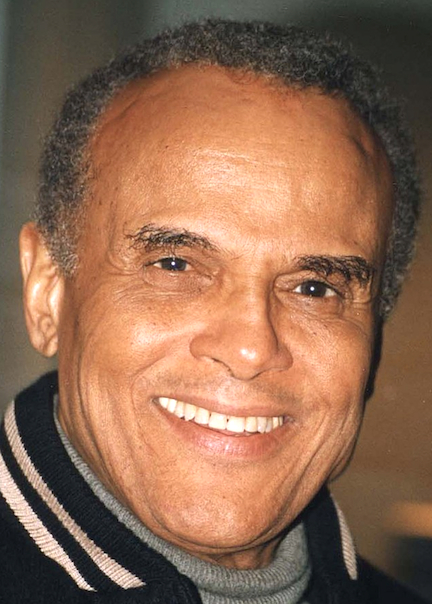
On this date in 1927, singer Harry Belafonte (né Harold George Bellanfanti Jr.) was born in New York City in a Harlem hospital to Melvine “Millie” (Love) and Harold Bellanfanti Sr., respectively a maid/seamstress and a cook on a ship carrying bananas from Jamaica to the U.S.
His maternal grandparents were Scottish- and Afro-Jamaican, and his father was born on the island of Martinique to an Afro-Jamaican mother and a Dutch father of Jewish descent. That Belafonte’s parents were both undocumented likely led to the Anglicization of his surname. He attended Catholic services and parochial school. After Sunday Mass, his mother took him to the Apollo Theater to hear Cab Calloway or Count Basie or Duke Ellington, Billie Holiday or Ella Fitzgerald: “As suffocating and interminable as Mass seemed, I could endure it if I knew that a few short hours later I’d be in the real cathedral of spirituality.” (My Song: A Memoir, 2011)
“As my parents drifted apart, my mother grew more religious, which had direct implications for me,” Belafonte wrote. “My mother’s religion became everybody’s burden, especially my father’s.” His father’s fondness for alcohol didn’t help. (Ibid., My Song)
After a year in Jamaica living with his grandmother, he returned to New York, dropped out of high school and enlisted in the U.S. Navy, serving in 1944-45, loading ships bound for the Pacific from California. Just before he arrived in Port Chicago in Contra Costa County, a massive ammunition explosion killed 320 people, two-thirds of them Black sailors.
He started taking acting classes at the New School in the late 1940s alongside Marlon Brando, Tony Curtis, Walter Matthau, Bea Arthur and Sidney Poitier. Garnering roles in Broadway plays, he met Paul Robeson, one of his heroes. He had started singing in nightclubs to pay for acting classes, backed in his first appearance by the Charlie Parker combo. He signed a recording contract with RCA Victor in 1953.
Belafonte’s breakthrough album “Calypso” (1956) became the first million-selling LP by a single artist, spending 31 weeks at No. 1 on the Billboard charts. It included “Day-O” (The Banana Boat Song) and lines like “Lift six foot, seven foot, eight foot bunch/Daylight come and we want to go home.” Before long, he was making $50,000 a week with his Las Vegas show.
He had married Marguerite Byrd in 1948 and they had two daughters, Adrienne and Shari, but separated with Shari in utero. They divorced in 1957, the year that Belafonte and Joan Collins had an alleged affair during the filming of “Island in the Sun.” The marriage had been on shaky ground for some time and it stuck Belafonte as odd that Marguerite was resisting a divorce they both knew was inevitable. “One reason, for Marguerite, was her newfound Catholicism. … She knew how much I resented my Catholic education, and how fiercely I’d rejected the Church.” (Ibid., My Song)
Before the year was out, he married Julie Robinson, a former dancer with the Katherine Dunham Company who was of Jewish descent. They had a son, David, and in 1961 a daughter, Gina, the last of his children. They divorced in 2004 after 47 years of marriage. He married Pamela Frank, a photographer, in 2008. Neither wanted a religious wedding, so they married at Terrace in the Sky restaurant near Columbia University.
His artistry from the 1950s onward put him among fewer than two dozen EGOT recipients as of this writing in 2023 for winning Emmy, Grammy, Oscar and Tony awards for achievements in television, recording, film and Broadway theater. He recorded in genres from blues, folk, gospel, show tunes, jazz and American standards. He recorded two live albums at Carnegie Hall, performed at President John F. Kennedy’s 1961 inaugural and included harmonica player Bob Dylan on his 1962 LP “Midnight Special.”
He became friends with Martin Luther King Jr. and was deeply involved in the struggle for Black civil rights in a dangerous time. “For Martin the tenets of nonviolence aligned with his deep religious faith — and that I would struggle with, for unlike Martin, I questioned the honesty of the church and the existence of God. We’d talk a lot about that.” (Ibid., My Song) It was a time for strange bedfellows, as exemplified by Belafonte and actor Charlton Heston standing side by side at King’s massive march in 1963 on Washington, D.C.
Though he frequented churches during this period and later, it wasn’t about religion. “He’s not a believer, never was,” wrote author Jeff Sharlet, who interviewed Belafonte at age 84. “For him it’s political. He can’t forgive the church the slave catechism taught by traders of the flesh. … Every spiritual he sang on TV or in a concert hall was a message about this world, not the next. (Undertow: Scenes From a Slow Civil War, 2023)
The title track of his 1977 album “Turn the World Around” won plaudits after it was featured on “The Muppet Show” in 1979. He had discovered the song in the African nation of Guinea and the album was only released overseas. (“Water make the river/River wash the mountain/Fire make the sunlight/Turn the world around.”) He performed it at Jim Henson’s 1990 memorial, and in 2005 it was included in the official hymnal supplement of the Unitarian Universalist Association’s “Singing the Journey.”
He always credited his mother as a primary inspiration for his activism, with her words during his youth: “Don’t ever let injustice go by unchallenged.” (National Catholic Reporter, April 27, 2023) He died at age 96 from congestive heart failure at home in Manhattan, N.Y. (D. 2023)
PHOTO: At Meyerhoff Symphony Hall in Baltimore in 1996; © copyright John Mathew Smith under CC 2.0.
“To me, faith as practiced all around me was blindly tied to religion, and religion was preachers in Harlem and Jamaica passing the hat for Jesus and driving off in fancy cars. It was nuns invoking the Christian spirit and rapping my knuckles with sticks. It was priests blessing Italian troops on the newsreels, sending them off to slaughter defenseless Ethiopians. I failed to see any good in the hypocrisy of that.”
— "My Song: A Memoir," with Michael Shnayerson (2011)
Brian Cox
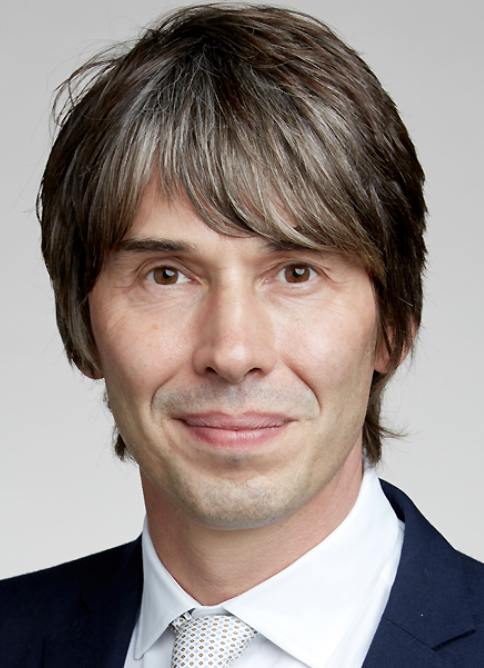
On this date in 1968, Brian Edward Cox was born in Lancashire, England. After completing his secondary education, Cox joined the rock band Dare as a keyboardist. Following the band’s breakup, Cox enrolled at the University of Manchester to study physics. He continued his career in music, playing with the pop band D:Ream, while receiving his B.Sc. and M.Phil degrees. D:Ream had several hits on the UK charts, including “Things Can Only Get Better,” a No. 1 hit.
As of this writing he works as a particle physicist at the University of Manchester and at the Large Hadron Collider near Geneva, Switzerland. He married Gia Milinovich in 2003 and they have one child. He was elected in 2016 as a Fellow of the Royal Society, the UK’s national academy of sciences.
Cox is best known for his science outreach to the general public and has appeared on numerous BBC television and radio programs. Cox also lectures widely, has given several TED talks, and has co-authored several books about physics, including 2009’s Why Does E=mc²? (And Why Should We Care?).
Cox is a strong advocate for science education and government funding of scientific research. Asked by the Guardian (March 6, 2010) if he has “ever believed in God,” Cox replied, “No! I was sent to Sunday school for a few weeks but I didn’t like getting up on Sunday mornings. But some of my friends are religious. I don’t have a strong view on religion, other than illogical religion. Young earth creationism, for example: bollocks.”
Cox says the label of atheist does not apply to him because there is so much that is unknowable. His story “The Large Hadron Collider: A Scientific Creation Story” was one of 42 included in “The Atheist’s Guide to Christmas” in 2009. From the essay: “When the pattern of atoms known as you ceases to be, the building blocks will return to the voids of space and in a billion years or more they may take their place in another structure so beautiful that a future mind may perceive it to be the work of a god.”
PHOTO: The Royal Society
“So for me, the idea I would be able to have an entertaining and enjoyable afternoon discussing with people with whom I suppose I have to say I disagree at the most fundamental level, because I don’t have a particular faith, or any faith in fact – however, I think that difference of opinion and view of the world is to be celebrated and explored.”
— "Professor Brian Cox condemns 'toxic' rows between science and religion," Christian Today (Sept. 9, 2016)
Penn Jillette
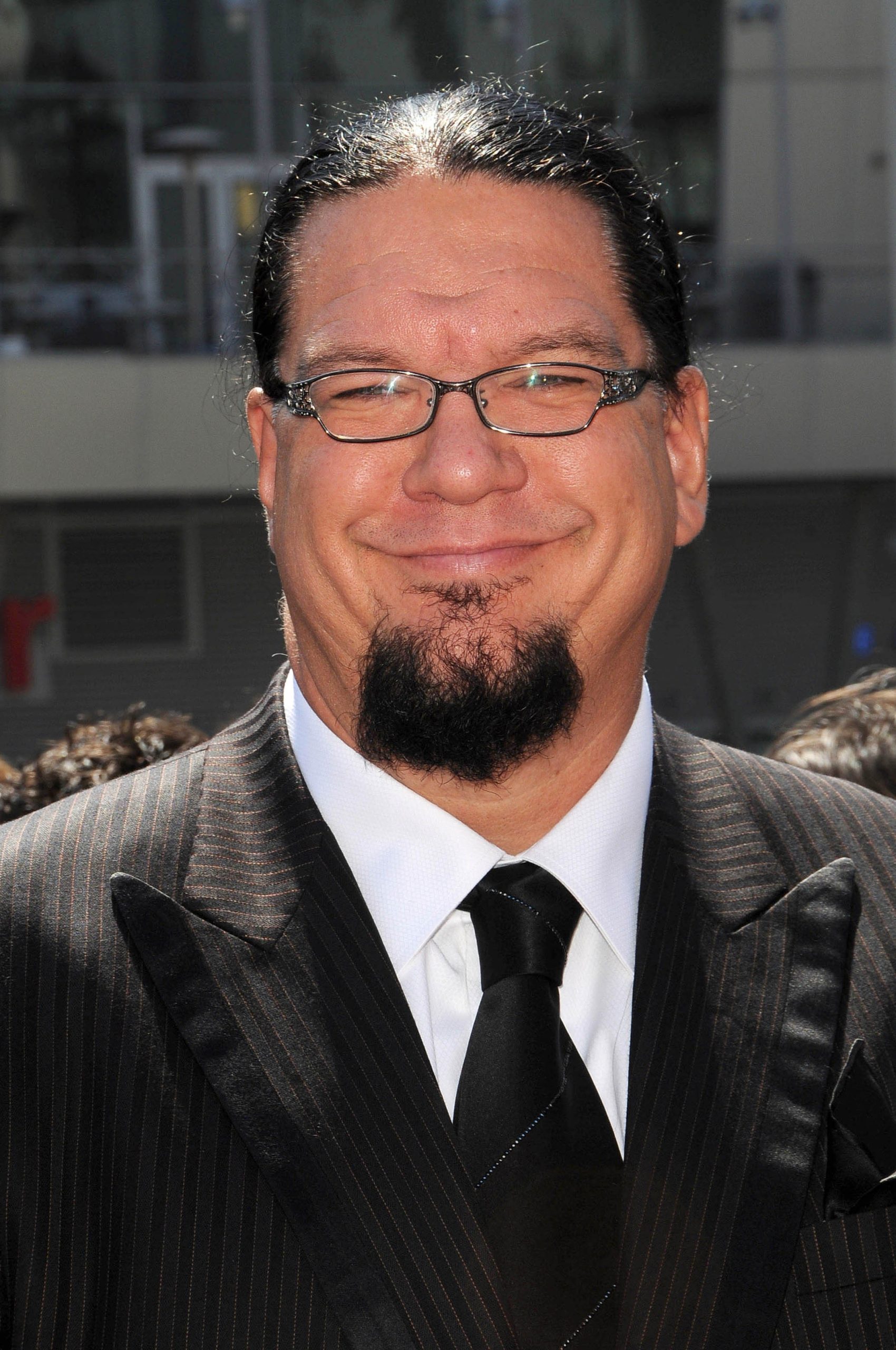
On this date in 1955, entertainer Penn Jillette was born in Greenfield, Mass. He embraced atheism as a teen and has been outspoken about it and his libertarian political views. After high school, he attended Ringling Brother’s Clown College for a year in 1973. In 1975 he first worked with silent magician Teller (his legal name) as part of an act called The Asparagus Valley Cultural Society before starting their longtime collaboration as Penn & Teller. They gained critical acclaim for their off-Broadway show in 1985 and have since had two Broadway runs, and toured the country extensively throughout the 1990s.
Teller traditionally stays mute during their magic acts in Las Vegas. The duo started hosting a documentary on Showtime in 2003 called “Penn & Teller: Bullshit!” On the show, Teller continued to not talk while Penn provided commentary. The stated aim was to debunk myths and share the truth with the public, often through a combination of interviews, narration and other documentary techniques.
Their topics often included religion and skepticism, for example, the episodes “Creationism” (2003), “The Bible: Fact or Fiction?” (2004) and “Holier Than Thou” (2005), which criticized Mahatma Gandhi, Mother Teresa and the Dalai Lama. Their recurring TV show “Fool Us” first aired in 2011. In their stage shows, they debunk supernaturalism and explain some of their magic tricks. They were presented with FFRF’s Emperor Has No Clothes Award in 2003 in Nevada for their “plain speaking” on the shortcomings of religion.
During the 2006–07 season, Jillette hosted the prime-time game show “Identity” on NBC. In 2008 he was a contestant on “Dancing with the Stars” and was the first celebrity eliminated. He was a contestant in 2012 on “The Celebrity Apprentice” season 5 and was fired by Donald Trump during the Week 11 episode. Also in 2012, along with Michael Goudeau, he started the podcast “Penn’s Sunday School,” still airing as of this writing.
Jillette has published eight books, including the best-selling God, No!: Signs You May Already Be an Atheist and Other Magical Tales (2011) and Every Day is an Atheist Holiday!: More Magical Tales from the Author of God, No! (2012). After high blood pressure landed his 6-foot-6 frame in the hospital in 2014, he lost 105 pounds and in 2016 published Presto!: How I Made Over 100 Pounds Disappear and Other Magical Tales.
He married film producer Emily Zolten in 2004. They have a daughter, Moxie CrimeFighter, born in 2005, and a son, Zolten Penn, born in 2006.
“I have so much love in my life,” he said in an interview. “So many people who love me and I love back makes the idea I need more from a God insane. I look at my children and I’m overwhelmed with this pure love that is not filtered through any sort of God.” (Humanist Network News, Dec. 19, 2012)
“You don’t have to be brave or a saint, a martyr, or even very smart to be an atheist. All you have to be able to say is ‘I don’t know.’ ”
— Jillette interview, Humanist Network News (Dec. 19, 2012)
David Gilmour
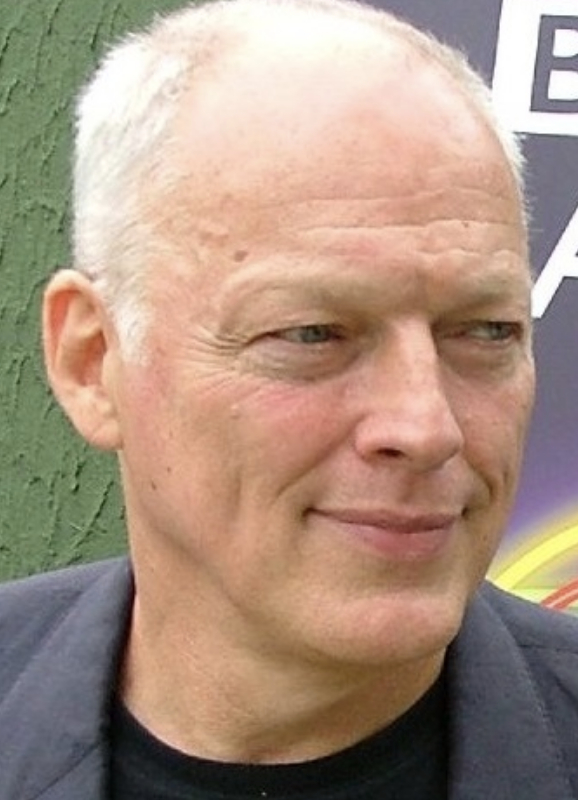
On this date in 1946, singer-songwriter David Jon Gilmour was born in Cambridge, England. His father lectured in zoology at Cambridge University and his mother worked as a teacher. Gilmour and Roger “Syd” Barrett played guitar together at the Cambridgeshire College of Arts and Technology. Gilmour formed several bands and in 1967 joined Barrett’s band Pink Floyd. Gilmour’s unique guitar and vocal talents were featured in the third-most successful studio album of all time, “The Dark Side of the Moon” (1973).
Gilmour led Pink Floyd after Roger Waters left in 1985. Under his direction, Pink Floyd recorded the albums “A Momentary Lapse of Reason” (1985), “The Division Bell” (1994) and “P.U.L.S.E.” (1995). Pink Floyd won a Grammy for the instrumental “Marooned,” composed by Gilmour and Richard Wright for “The Division Bell.” It’s the only track by the band to ever win a Grammy. In 1996 the band was inducted into the U.S. Rock & Roll Hall of Fame and received the same honor in the United Kingdom in 2005. Their last album, “The Endless River,” was in 2014. Wright died in 2008.
Gilmour had several hit solo albums, including a self-titled chart-topper in 1978 and “About Face” in 1984. His third solo album, “On An Island” (2006), went multi-platinum. He was honored in 2005 with the distinguished CBE title (Commander of the Order of the British Empire) for his services to music and his philanthropic work. Notable among his charitable deeds, he sold his London home in 2003 and gave the £3.6 million proceeds to a homeless charity.
In a Chicago Tribune story (March 31, 2006), Gilmour said: “When you get to 60, one of your preoccupations is that the life you have ahead of you is quite a lot shorter than the life you have behind you. You can’t help thinking about that. It’s something inside all of us, even though I’m not a believer in God or an afterlife. I’m an atheist. I’m sort of resigned to my lot in life, and content in it.”
Gilmour’s most recent albums as of this writing are “Rattle That Lock” (2015) and “Live at Pompeii” (2017). Gilmour in 2022 blocked all sales of his digital recordings and much of the Pink Floyd catalog in Russia after Russia invaded Ukraine, and reunited with Pink Floyd to record “Hey, Hey Rise Up” featuring singer Andriy Khlyvnyuk of the Ukrainian band Boombox.
Gilmour married American-born model and artist Virginia “Ginger” Hasenbein in 1975. They have four children and divorced in 1990. In 1994 he married writer and lyricist Polly Samson, with whom he has four more children.
He raised $21.5 million in 2019 from a Christie’s sale of over 120 of his instruments and artifacts. He donated the proceeds to ClientEarth, a charity which fights legal battles to preserve a sustainable global climate and environment.
PHOTO: Gilmour in 2005; Andy MacLarty photo. CC 2.0
“This earthly heaven is enough for me.”
— Gilmour lyrics from “This Heaven,” a song from his solo album "On An Island" (2006)
Carl Reiner
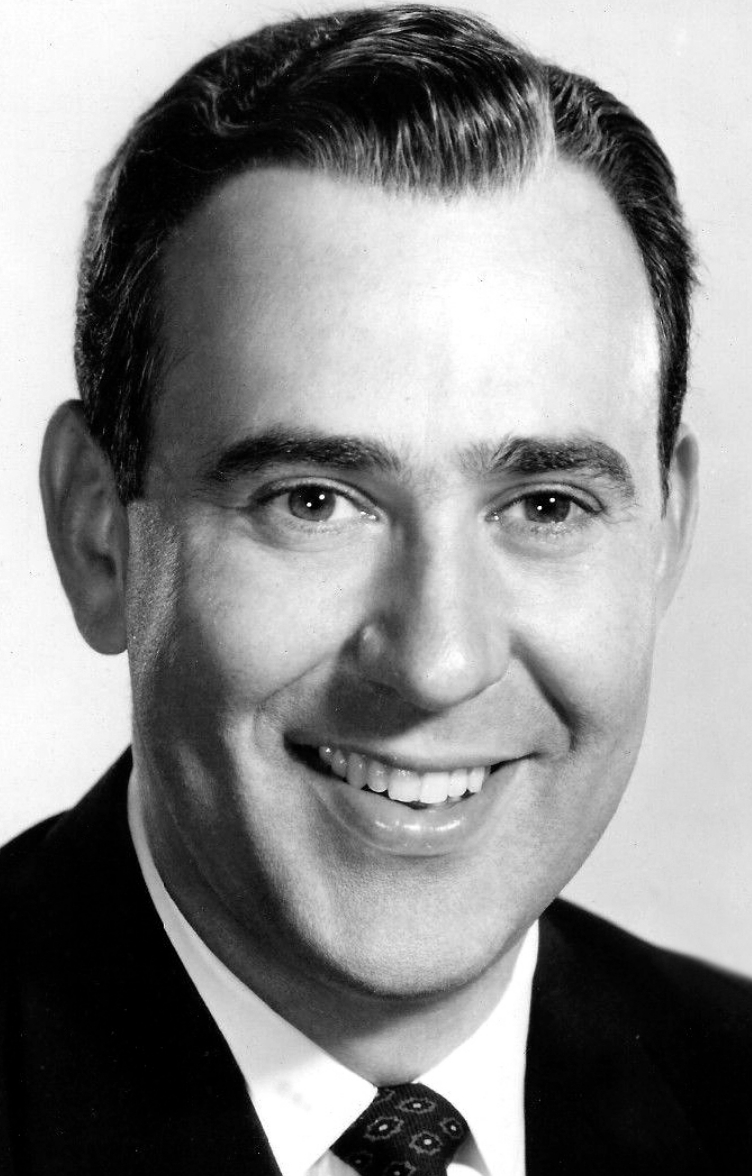
On this date in 1922, actor Carl Reiner was born in the Bronx, New York, to immigrant Jewish parents. The son of a Romanian-born watchmaker and a Hungarian mother started his distinguished entertainment career in Broadway musicals after serving in the Pacific during World War II. Among his lifetime achievements in writing, directing, producing and acting for television and film, Reiner was perhaps most noted for creating, directing and frequently appearing on “The Dick Van Dyke Show” (1961-66).
He was cast in comedian Sid Caesar’s “Your Show of Shows” (1950-54), appearing in skits while also working alongside writers Mel Brooks and Neil Simon. He directed “Oh, God!” (1977), starring George Burns and directed and co-wrote four Steve Martin films: “The Jerk” (1979), “Dead Men Don’t Wear Plaid” (1982), “The Man With Two Brains” (1983) and “All of Me” (1984). In 2007, the Director’s Guild of America honored him with an Honorary Life Member award. Over his career he won nine prime-time Emmy Awards and a Grammy.
Reiner married Estelle Lebost in 1943 and they were married until her death at age 94 in 2008. Their children are Rob (b. 1947), Annie (b. 1949) and Lucas (b. 1960). Estelle delivered the line “I’ll have what she’s having” in the famous restaurant scene in Rob’s 1989 film “When Harry Met Sally.”
Reiner wrote 18 books, including five biography/memoirs (the last announced in 2017 when he was 95). At 97 he was still active on Twitter and still had his sense of humor, publishing an illustrated children’s book in 2017 titled You Say God Bless You for Sneezing and Farting!
Reiner called himself a Jewish atheist. “I have a very different take on who God is,” he said in a 2008 Los Angeles Times interview. “Man invented God because he needed him. God is us.”
Reiner in October 2018 denounced the Trump administration and said his goal was to live to see him voted out of office. He didn’t quite make it, dying at home in Beverly Hills at age 98 about four months before the election. (D. 2020)
PHOTO: Reiner at age 38.
MOMENT: Have you always been an atheist?
REINER: I became an atheist after Hitler came. I said, what is this? If there was a God, would he not be hearing 18 million people, 16 million Jews, or 20 million other people, saying,”Please God, don’t do this, make him stop?” God was so busy doing what? Striping zebras or fixing the long necks of giraffes?— Interview, Moment magazine, founded by Elie Wiesel (May 1, 2013)
Harry Houdini
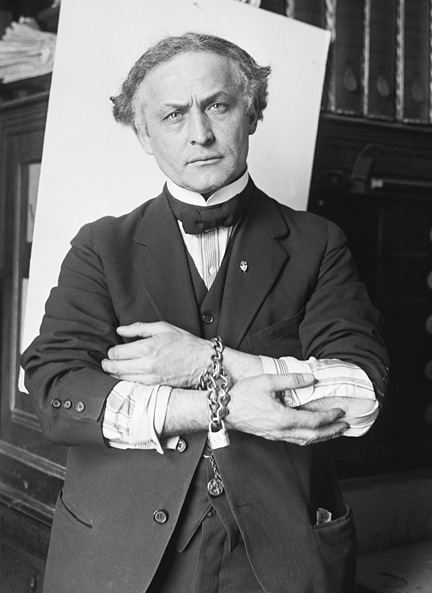
On this date in 1874, Erik Weisz was born in Budapest, Hungary. His parents were Rabbi Mayer Weisz and Cecília Steiner. In 1878 the family emigrated to America and settled in Appleton, Wis., before relocating to New York City in 1887. He chose his stage name because he admired the French magician Jean Eugene Robert-Houdin. Houdini began his magic career in 1891, initially performing traditional magic tricks but later focusing almost exclusively on escape acts.
In 1894 he married his wife Bess, a fellow performer. Houdini toured Europe beginning in 1900 and became well-known for an act where police would restrain him in handcuffs which he would then escape. He toured America with variations of this act and other escape routines, including escaping from a straitjacket and the famous Chinese Water Torture Cell, where Houdini would escape from a water-filled cell where he was hanging by his ankles. He served as the president of the Society of American Magicians from 1917 until his death.
Although many magicians of the era claimed to have supernatural powers, Houdini never did. In the 1920s he began to focus on debunking psychics and mediums, using his training in magic to expose techniques that created the illusion of their so-called “supernatural” powers. He was part of a Scientific American committee that offered a cash prize for successful proof of supernatural abilities, a prize that was never awarded.
He made a pact with his wife, who was also his stage assistant that she was to make regular attempts to contact him after his death, including an annual séance on Halloween. If it was possible, he said he would convey to her a secret phrase they agreed upon to prove it was really him. He never made contact.
After 10 years, Bess bestowed the responsibility for the ritual to trusted magician friend Walter Gibson. The tradition has been passed down to other magicians who have preserved it to this day, with no contact with Houdini ever reported. James Randi carried on Houdini’s challenge, offering $1 million dollars to anyone who could demonstrate supernatural ability.
Houdini died in 1926 of peritonitis and appendicitis, aggravated by punches to the stomach. (Houdini famously was asked by J. Gordon Whitehead if he could sustain punches to the stomach; after Houdini’s affirmative response, Whitehead immediately punched the magician, who was not prepared for the blows.) He was buried in a Jewish cemetery in Queens, but his gravesite pays homage to his career in magic rather than his Jewish heritage; in fact, a bust of Houdini was placed at the grave in 1927, although a “graven image” was not allowed according to Jewish law. D. 1926.
“I have made compacts with fourteen different persons that whichever of us died first would communicate with the other if it were possible, but I have never received a word.”
— Houdini, "A Magician Among the Spirits" (1924)
Richard Jeni
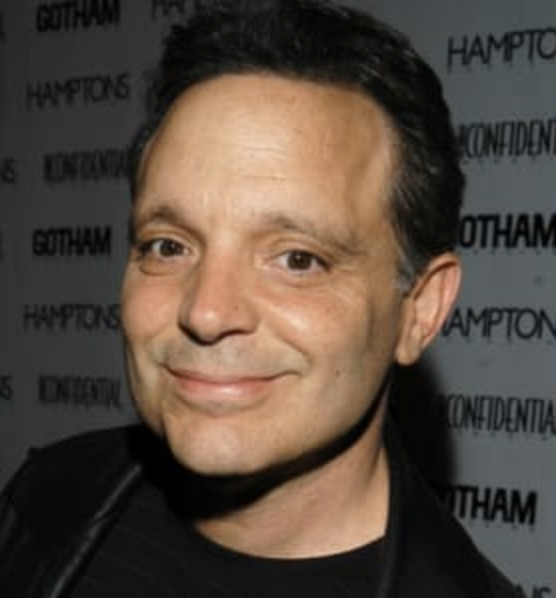
On this date in 1957, comedian and actor Richard John Colangelo (stage name Richard Jeni) was born into a Catholic family in a rough neighborhood in Brooklyn, N.Y. A shy kid with a talent for language, he won a national essay competition as a youth and earned an honors political science degree from Hunter College in New York City. In his 20s he worked in public relations and as a taxi driver before hitting the national scene with the Showtime special “Richard Jeni: Boy From New York City” (1990).
Two years later, his next special, “Crazy from the Heat,” garnered the highest ratings in Showtime’s history. Other stand-up comedy television specials included “Platypus Man” (1992), “A Good Catholic Boy” (1997) and “A Big Steaming Pile of Me” (2005). He made appearances on “The Daily Show,” “Comedy Central Presents,” “Everybody Hates Chris,” “Married With Children,” “Hollywood Squares” and was a frequent guest on “The Tonight Show.” Jeni debuted in the popular 1994 Jim Carrey film “The Mask,” followed by roles in “National Lampoon’s Dad’s Week Off” (1997) and “Burn Hollywood Burn” (1997).
He frequently mocked religion in his stand-up career. “Religious war? You’re basically killing each other to see who’s got the better imaginary friend” (CNN, “A few words from Richard Jeni,” March 12, 2007). He told the audience in “A Big Steaming Pile of Me”: “You gotta respect people who have strong religious beliefs, don’t we? ‘Cause if you don’t, they’ll kill you.”
Jeni won several CableACE Awards for his stand-up specials, and George Carlin presented him the American Award for “Best Male Stand-up” on ABC. Comedy Central ranked Jeni #57 on its top 100 list of greatest stand-ups of all time.
Suffering from severe clinical depression, Jeni committed suicide at age 49. The coroner’s report said he had a history of schizophrenia and had been taking antidepressants and a sleeping aid. (D. 2007)
“When one guy sees an invisible man he’s a nut case. Ten people see him it’s a cult. Ten million people see him it’s a respected religion.”
— Richard Jeni personal website
David Attenborough
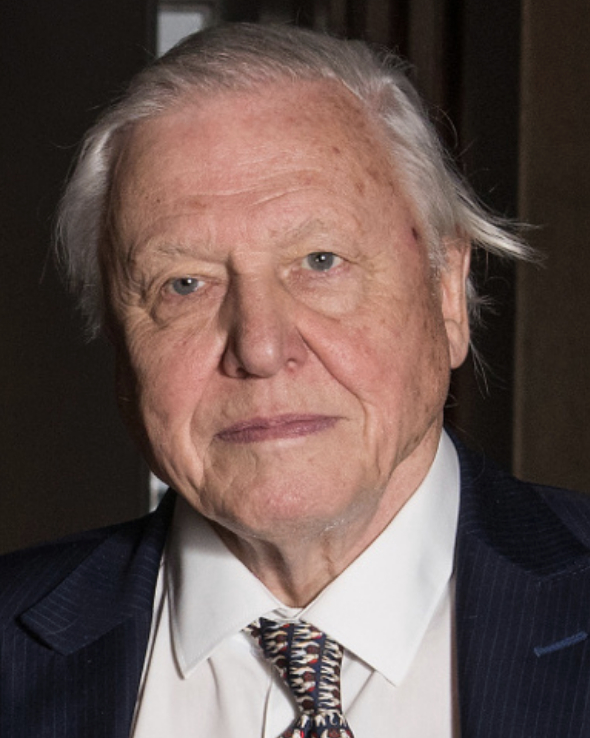
On this date in 1926, Sir David Attenborough was born in London, England. He is the brother of Lord Richard Attenborough, the director and actor. He graduated from Cambridge University in 1947 with a degree in Natural Sciences and then spent two years in the Royal Navy.
In 1952 he joined the BBC as a producer. He began working on his first series, “Zoo Quest,” a wildlife documentary series, in 1954. Attenborough was appointed controller of BBC Two in 1965 and director of programming in 1969 before deciding to return to creating nature series in 1973. He is known for the popular trilogy “Life on Earth” (1979), “The Living Planet” (1984) and “The Trials of Life” (1990). His other series include “The Private Life of Plants” (1995) and “Life of Birds” (1998). He was knighted in 1985 for his services to television.
Attenborough was married to Jane Elizabeth Ebsworth Oriel from 1950 until her death in 1997. They have two children. He was never religious and was not brought up with faith. “It never really occurred to me to believe in God,” Attenborough said in a 2009 interview with Radio Times. “And I had nothing to rebel against. My parents told me nothing whatsoever. But I do remember looking at my headmaster delivering a sermon, a classicist, extremely clever … and thinking, he can’t really believe all that, can he? How incredible!”
When Radio Times asked Attenborough why he never credited God in his nature documentaries, Attenborough responded: “They always mean beautiful things like hummingbirds. I always reply by saying that I think of a little child in East Africa with a worm burrowing through his eyeball. The worm cannot live in any other way, except by burrowing through eyeballs. I find that hard to reconcile with the notion of a divine and benevolent creator.”
Attenborough addressed evolution in his BBC documentary “Charles Darwin and the Tree of Life” (2009): “Evolution is as solid a historical fact as you could conceive.”
PHOTO: Attenborough in 2015; John Cairns photo (cropped), CC 4.0.
“… I’m not so confident to say that I’m an atheist, so I’d prefer to say I’m an agnostic.”
— Attenborough, BBC (Jan. 25, 2009)
Henry Fonda
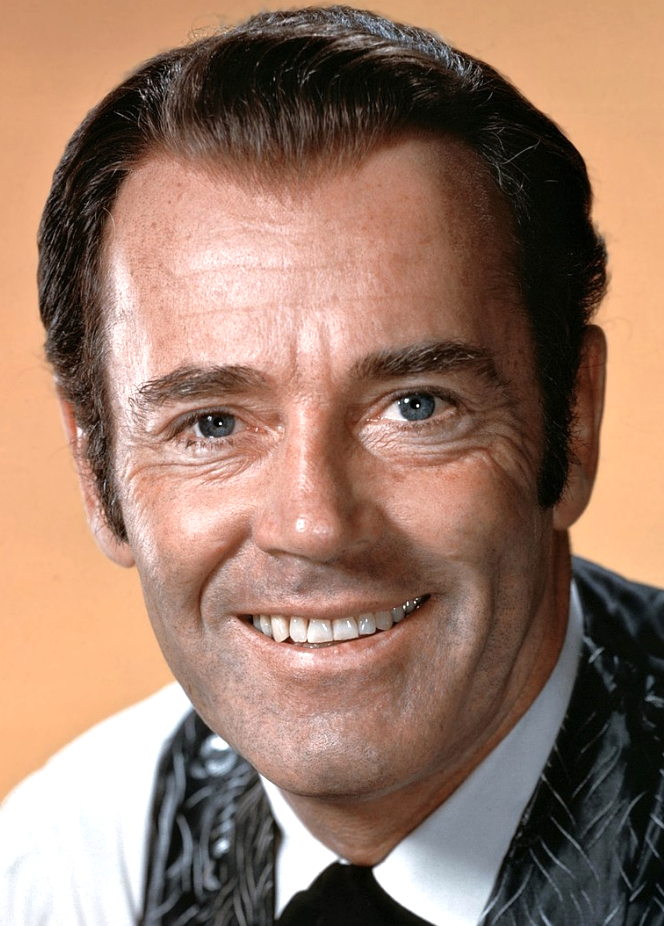
On this date in 1905, actor Henry Jaynes Fonda, the oldest of three children, was born in Grand Island, Neb., to William Brace Fonda and Herberta Krueger Jaynes. Although raised as a Christian Scientist, according to his biography, Fonda: My Life, written by Howard Teichmann in collaboration with Fonda, “[Fonda] claims to be an agnostic. Not an atheist but a doubter.” “My father was an agnostic,” wrote Jane Fonda in her autobiography, My Life So Far (2005).
Although he studied journalism in college, Fonda quit school and worked briefly in sales. At 20, Fonda started acting at the Omaha Community Playhouse. Between 1926 to 1934 he was in a myriad of theatrical productions before finally making his Hollywood debut in 1935, where his career took off. Fonda was nominated for an Academy Award for his performance in “The Grapes of Wrath” (1941). He won a Tony Award for his part as a junior officer in “Mister Roberts” (1948).
In 1957 he acted in and produced “12 Angry Men,” for which he shared the Academy Award and Golden Globe nominations with co-producer Reginald Rose, also winning the BAFTA Award for Best Actor for that film. Fonda was nominated for an Emmy for the TV movie adaptation of John Steinbeck’s novel, “The Red Pony” (1973). Returning to Broadway in 1974, he was nominated for a Tony Award for his riveting performance in the one-man show “Clarence Darrow.”
Although failing in health, Fonda continued acting in both TV and film, winning the Cecile B. DeMille Award for Lifetime Achievement in 1980. In 1981, he received a Lifetime Achievement Award from the Academy, as well as Best Actor for his performance in “On Golden Pond.” He also picked up the Golden Globe award for Best Motion Picture Actor for that movie. Making more than 100 films during his lifetime, Fonda was best known for his roles as the plain-speaking idealist. He was the father of three children, Jane and Peter Fonda, and their younger sister, Amy, and was the grandfather of actress Bridget Fonda. (D. 1982)
PHOTO: Fonda in a 1959 studio publicity shot for the movie “Warlock.”
“There had never been any renunciation of religion on my part, but like so many people, it was a gradual fading away.”
— Fonda, quoted in "Fonda: My Life" by Howard Teichmann (1981)
Ron Reagan
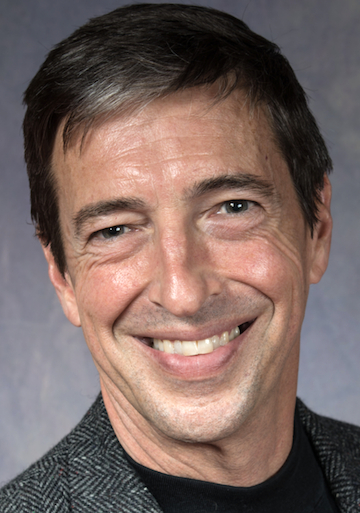
On this day in 1958, Ronald Prescott Reagan (Secret Service code name “Reliant”) was born in Los Angeles to Ronald Wilson Reagan and Nancy Reagan, the future U.S. president and first lady. As liberal as his famous father was conservative, Reagan stopped going to church when he was 12 and has publicly stated he’s an atheist numerous times. In 2004, he accepted FFRF’s Emperor Has No Clothes Award and spoke at the 2009 convention in Seattle.
Reagan grew up in Los Angeles and Sacramento, went to Yale University for a semester and then joined the Joffrey Ballet Company as a corps de ballet dancer. He left the Joffrey in 1983 and has since worked as a broadcast and print journalist and television and radio host. He co-hosted “Connected: Coast to Coast with Ron Reagan and Monica Crowley” on MSNBC, was a special correspondent for ABC’s “20/20” and “Good Morning America” and FOX News’ “Front Page,” as well as hosting the syndicated “Ron Reagan Show” starting in 1991.
He’s also done work for E! Entertainment Television, Animal Planet and American Movie Classics and has contributed to Newsweek, The New Yorker, Playboy, Los Angeles Times, Esquire and Interview. “The Ron Reagan Show,” syndicated by Air America Media, went on the air in 2008. Reagan serves on the Advisory Board of the Creative Coalition, a nonpartisan group founded in 1989 to mobilize entertainers and artists for causes such as First Amendment rights, arts advocacy and public education.
Reagan, along with his late mother, has been a strong supporter of embryonic stem cell research. “When you’re depriving people, potentially, of lifesaving or life-improving cures or treatments purely for political reasons, I find that to be really shameful.”
In a 2008 interview with The Hill newspaper, he was asked when he started questioning his father’s political beliefs: “Oh, puberty. Probably by age 12. That was when I told [my parents] I would no longer go to church with them because I was an atheist. One thing leads to another. It wasn’t a great leap to then disagree on politics.” Was he upset? “Yeah, but he wasn’t angry. He was a Christian and took it fairly seriously. He was worried that my life would be diminished if I didn’t accept Christ as my savior. We’d argue at the dinner table all the time, but I don’t think he was losing sleep over it.”
During a speech about stem cell research at the Democratic National Convention on July 27, 2004, Reagan voiced his opinion on church/state separation: “[I]t does not follow that the theology of a few should be allowed to forestall the health and well-being of the many.” The New York Times asked him in 2004, in an interview that ran three weeks after his father died, if he’d like to be president. “I would be unelectable,” Reagan said. “I’m an atheist. As we all know, that is something people won’t accept.”
Reagan, an honorary director of FFRF, generously recorded a radio spot for FFRF during Air America’s broadcast reign, then in 2014 agreed to record a TV ad for FFRF: “Hi, I’m Ron Reagan, an unabashed atheist, and I’m alarmed by the intrusion of religion into our secular government. That’s why I’m asking you to support the Freedom From Religion Foundation, the nation’s largest and most effective association of atheists and agnostics, working to keep state and church separate, just like our Founding Fathers intended. Please support the Freedom From Religion Foundation. Ron Reagan, lifelong atheist, not afraid of burning in hell.”
The ad ran on Comedy Central, CNN and MSNBC’s “Rachel Maddow Show” but was refused by CBS, NBC, ABC and Discovery Networks, apparently due to the irreverent reference to hell. The popularity of the quip has also inspired FFRF to produce a T-shirt, a bumper sticker and a lapel pin saying “Unabashed Atheist, Not Afraid of Burning in Hell,” as well as a personalized online interactive digital “billboard.”
Reagan addressed the FFRF national convention in 2015, where he said: “Blind faith is the abdication of reason. You can’t have a functioning democracy when most of the people believe in a lot of nonsense. If you want good public policy, it has to be based on facts and evidence. Private beliefs invade public policy. All the politicians you see invoking God were just private citizens once, and now they are in Congress.”
In an interview (Jan. 17, 2020) with the Daily Beast after his FFRF ad ran during a Democratic debate, Reagan said he found it curious that people who invoke “freedom of religion really mean freedom to be bigots. ‘Who can we refuse service to?’ It starts with LGBTQ people. What about unmarried couples? What about divorced people? What about black people? You can find justification for almost anything in the Bible, and it’s ugly, cruel, and stupid. We’re on to them. We’ll keep speaking up.”
He married Doria Palmieri in 1980, 20 days after his father was sworn in as president. She died in 2014 at age 62 from complications of a neuromuscular disease. In 2018 he married Federica Basagni, an Italian who was one of Doria’s closest friends.
“As for hell, mocking this imaginary threat rather strikes at the heart of religious belief in a way that I suspect most believers only intuitively grasp. It’s a crucial support in their house of cards. Without hell, heaven is pointless.”
— Reagan email statement to FFRF Co-President Annie Laurie Gaylor (April 23, 2019)
Sir Ian McKellen
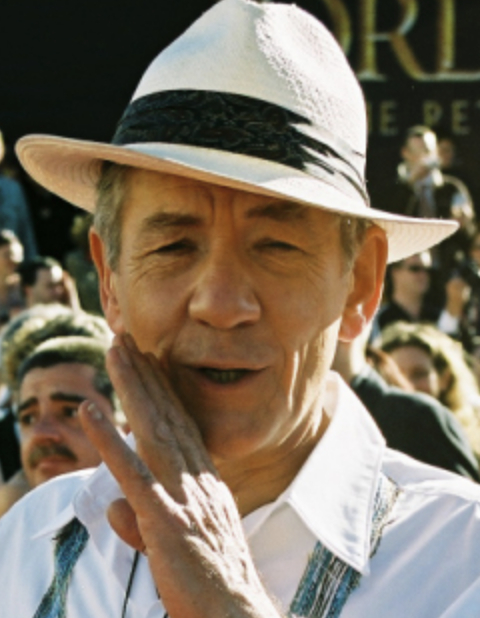
On this date in 1939, Ian Murray McKellen was born in Burnley, Lancashire, England. At 18, McKellen won a scholarship to Cambridge, where he read English and participated in student drama. He graduated in 1961 and began working as an actor. Most of McKellen’s early acting career took place on the stage, both in the UK and on Broadway, but he also worked in film and television in the UK.
In 1980 McKellen received the Tony Award for Best Actor for his stage role as Salieri in “Amadeus.” In the 1990s he started to work in Hollywood films.
McKellen has been nominated for two Oscars, once for Best Actor in 1999 for his role as film director James Whale in “Gods and Monsters,” and once for Best Supporting Actor in 2002 for the role of the wizard Gandalf in “The Fellowship of the Ring,” a role for which he won the Screen Actor’s Guild Award. McKellen played Gandalf in all three “Lord of the Rings” movies and reprised the role in the “The Hobbit: An Unexpected Journey” (2012).
He has also played the comic-book villain Magneto in the movies “X-Men” (2000), “X2” (2003), and “X-Men: The Last Stand” (2006). McKellen’s classical acting career includes playing many Shakespearean leads, both for stage and screen. In 1995 he famously played the lead in the film “Richard III,” set in an alternate fascist England, and in 2007, he played King Lear in a stage production that toured the world and was shown on American TV.
McKellen is open about his personal atheism but does not often speak on the subject. He came out as a gay man publicly in 1988 and became a founding member of the UK LGBT advocacy group Stonewall to advocate against discriminatory legislation. McKellen was made a Commander of the Order of the British Empire in 1979 and was knighted in 1991 for his contributions to theater. In 2008 he was made a Companion of Honor for his services to drama and equality.
PHOTO: McKellen at “The Return of the King” premiere in 2003; Stefan Servos photo under CC 3.0.
Matt Lauer: There have been calls from some religious groups. They wanted a disclaimer at the beginning of this movie saying it is fiction because, again, one of the themes in the book really knocks Christianity right on its ear. … How would you all have felt if there was a disclaimer at the beginning of the movie?
Ian McKellen: Well, I’ve often thought the bible should have a disclaimer in the front saying this is fiction. I mean, walking on water, it takes an act of faith. And I have faith in this movie. Not that it’s true, not that it’s factual, but that it’s a jolly good story. And I think audiences are clever enough and bright enough to separate out fact and fiction, and discuss the thing after they’ve seen it.— McKellen interview on "The Today Show" about "The Da Vinci Code" (May 17, 2006)
Harlan Ellison
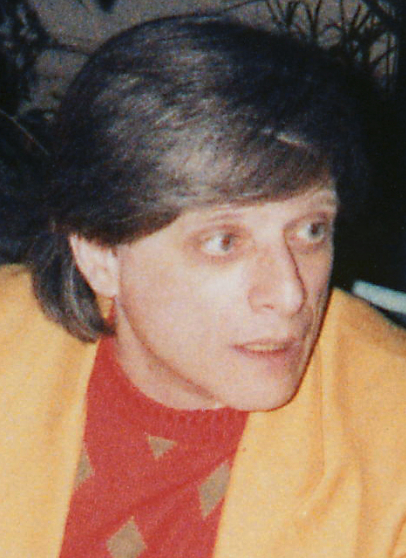
On this date in 1934, Harlan Ellison was born in Cleveland. A prolific writer, Ellison penned 75 books and over 1,700 short stories, articles, columns and screenplays. His books and collections of short stories include I Have No Mouth & I Must Scream (1967), Approaching Oblivion (1974), Deathbird Stories (1975) and Strange Wine (1978). He worked as creative consultant for “The Twilight Zone” (1985–86) and as a conceptual consultant for “Babylon 5” (1994–99).
Ellison wrote scripts for such well-known shows as “Star Trek” — including the famous episode, “The City on the Edge of Forever” (1966) — and “The Twilight Zone.” He won numerous awards for his work, including eight Hugo Awards from 1966-86; the P.E.N. International Silver Pen in 1982 for An Edge in My Voice (1985), which was serialized in L.A. Weekly; and the Georges Melies Fantasy Film Award for Outstanding Cinematic Achievement in Science Fiction Television in 1972 and 1973.
Ellison was raised Jewish, but became critical of religion. “The people who bomb churches and synagogues, they quote the bible. The people who shoot doctors use the bible,” Harlan said during a 1997 episode of “Politically Incorrect with Bill Maher.”
In the 2008 documentary “Harlan Ellison: Dreams With Sharp Teeth,” he said, “I find nothing more ridiculous and annoying than some guy who runs a kickoff back 105 yards from the end zone and drops to his knees and thanks God. Well, that’s foolish. God didn’t do it. He did it. Because if God did that for him, you mean God was against the other team? God is that mean-spirited that he has nothing better to do on Sunday afternoon than beat the crap out of a bunch of poor football players? I don’t believe in the universe being run by that kind of a God. I go with Mark Twain.”
The New York Times noted in his obituary that Ellison was “ranked with eminent science fiction writers like Ray Bradbury and Isaac Asimov,” however Ellison prefered to call his genre of writing “speculative fiction, or simply fiction.” Ellison wrote what could be considered his own epitaph: “For a brief time I was here; and for a brief time I mattered.” (The Essential Ellison, 1987.) He died at age 84 and was survived by his fifth wife, Susan Toth. (D. 2018)
PHOTO: Ellison at the L.A. Press Club in 1986; Pip R. Lagenta photo under CC 2.0.
“I think [religion] is presumptuous and I think it is silly, because it makes you believe that you are less than what you can be. As long as you can blame everything on some unseen deity, you don’t ever have to be responsible for your own behavior.”
— Ellison, “Harlan Ellison: Dreams With Sharp Teeth” (2008)
Adam Carolla
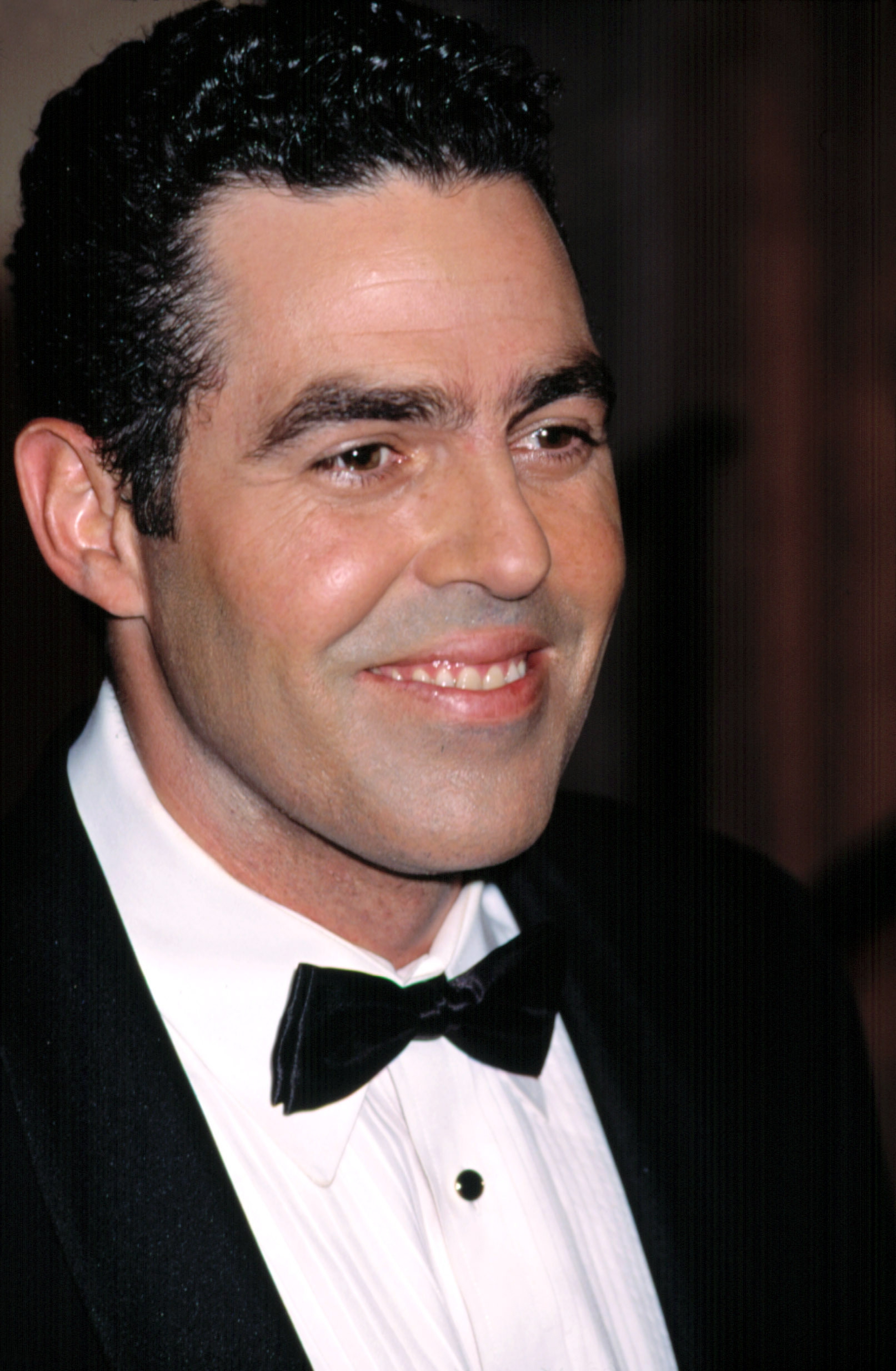
On this day in 1964, Adam Carolla was born in Los Angeles. He briefly attended community college before deciding to pursue various professions, including working as a contractor, carpenter and boxing trainer. After working with the improv group The Groundings, Carolla decided to become a full-time comedian. He co-hosted “The Man Show” (1999–2004) and “Crank Yankers” (2002–07) with Jimmy Kimmel, whom Carolla met when teaching Kimmel to box. He also co-hosted the radio show “Loveline” (1999–2005).
In 2009 he started hosting “The Adam Carolla Show,” a free daily podcast on the ACE Broadcasting Network. A talk show, it was the most downloaded podcast in 2011. Carolla is also a published author. His comedic works include In Fifty Years We’ll All Be Chicks (2011) and Rich Man, Poor Man (2012). He married Lynette Paradise in 2002. They have two children.
“I’m an atheist,” Carolla told Penn Jillette on Penn Radio in 2006. He told Jillette that he had never been religious and that the very idea of religion seemed bizarre to him. “Obviously, you could take any Christian and just have them born into fundamentalist Hasidism, and they would be walking around with the beard and the whole getup. If you weren’t indoctrinated into that early on, then it makes no sense.”
“If you were not born into [religious] culture, it seems like the most outlandish thing in the world.”
— Adam Carolla, Penn Radio interview (March 9, 2006)
Marilyn Monroe
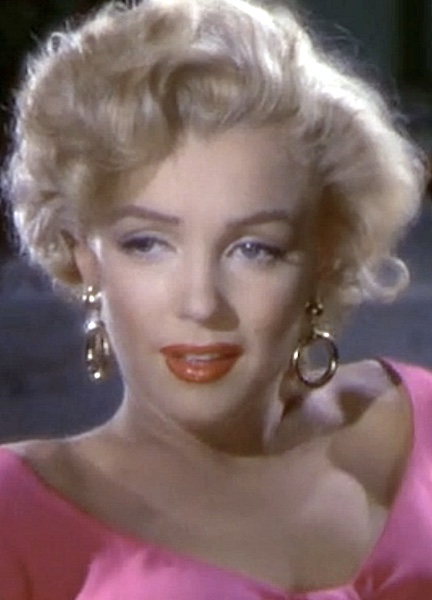
On this date in 1926, Norma Jeane Mortenson (later baptized Norma Jeane Baker, who would become immortalized as Marilyn Monroe) was born in Los Angeles. Monroe never knew her father, and her mother, Gladys, practiced Christian Science and was institutionalized for psychiatric problems. Her grandmother, Della Monroe, had Monroe baptized in the Foursquare Gospel Church. She spent time in various foster care homes and orphanages, some of which were religious, but from 1937 to 1942, was mostly raised by family friends, the Goddards.
When the Goddards left Los Angeles, they didn’t take Monroe, 16, with them. Faced with a return to foster care, she married her boyfriend Jimmy Dougherty. He was sent with the Merchant Marine to the South Pacific and Monroe started working as a model. After Dougherty returned in 1946, the couple divorced over disagreements about Monroe’s career.
That year, the 20-year-old signed her first film contract and started using her stage name. Her first critical and popular exposure occurred in 1950, for her roles in “The Asphalt Jungle” and “All About Eve.” Her breakout starring role was in “Niagara” (1953), and that same year she starred in “Gentlemen Prefer Blondes” and “How to Marry a Millionaire.” Also in 1953, Monroe was the cover girl and centerfold for the first issue of Playboy magazine.
In January 1954 she married baseball legend Joe DiMaggio, whom she had been dating for two years. They divorced later that same year after a fight on the set of “The Seven-Year Itch.” She then studied with Lee Strasberg at the Actors Studio in New York and started dating playwright Arthur Miller, whom she married in 1956. Monroe starred in the dramatic comedy “Bus Stop” in 1956. In 1959 she received a Golden Globe for Best Actress in a Comedy for her role in “Some Like It Hot.”
Monroe’s last completed film, “The Misfits,” was written for her by Miller. The couple had split soon after filming finished in 1961. Monroe was fired from the film “Something’s Got to Give” (1962), and on August 5 of that year was found dead of a sleeping pill overdose. The death was ruled a probable suicide.
On a call-in panel commemorating her death, her friend Jeanne Carmen said of Monroe, “I don’t think she had a religion. We never talked religion.” Another panelist on the show, James Bacon — one of her purported lovers — confirmed that to his knowledge, Monroe did not attend church. (CNN, Aug. 5, 2003.) When she married Miller, Monroe converted to Judaism and the two were wed with both civil and religious ceremonies. The rabbi who converted her said, “She was impressed with the rationalism of Judaism — its ethical and prophetic ideals and its concept of close family life.” (Philadelphia Examiner, March 6, 2010.) D. 1962
PHOTO: Monroe in a publicity shot for “Niagara” in 1953.
“Jane tried to convert me [to religion] and I tried to introduce her to Freud.”
— Monroe, on starring with Jane Russell in "Gentlemen Prefer Blondes," from Russell's obituary (Reuters, March 1, 2011)
Natalie Portman
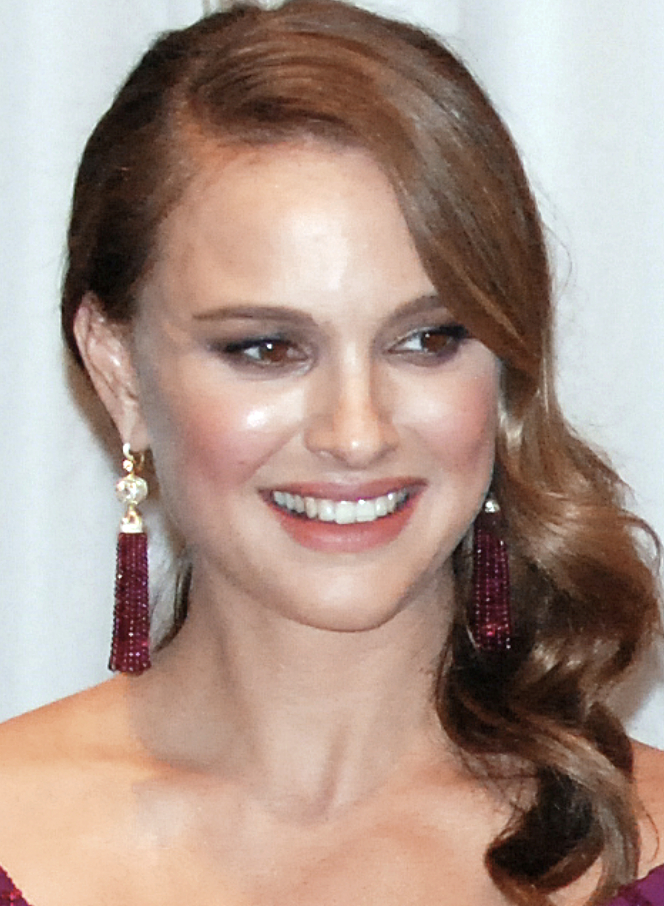
On this date in 1981, actress Natalie Hershlag (stage name Natalie Portman) was born in Jerusalem, Israel. Portman’s ancestors were Austrian, Russian, Polish and Romanian Jews. Some emigrated to Israel and others died in Auschwitz. Portman’s parents met in the U.S. at Ohio State University. When she was 3 they moved to Washington, D.C., where her father earned a medical degree and became a fertility specialist.
Starting at age 13, Portman landed roles in several popular films, including “The Professional” (1994), “Heat” (1995), “Beautiful Girls” (1996), “Mars Attacks!” (1996) and the musical “Everyone Says I Love You” (1996).
She gained international fame for playing Queen Amidala/Padmé in “Star Wars: Episode I” (1999) and had to skip the premiere to take her high school final exams. Portman reprised that role in “Star Wars” sequels in 2002 and 2005 and had powerful roles in hit films such as “Anywhere but Here” with Susan Sarandon (1999), “Where the Heart Is” (2000), “Cold Mountain” (2003), “V for Vendetta” (2006), “The Other Boleyn Girl” (2008), “Brothers” (2009) and “Black Swan” (2010), for which she won the Best Actress Golden Globe (2011) and the Best Actress Academy Award (2011). She won her first Golden Globe for her role in the 2004 hit film “Closer,” for Best Supporting Actress.
Portman, who has had several papers published in scientific journals, graduated with a degree in psychology from Harvard in 2003. In addition to her screen work, she is an accomplished stage actress, performing in “The Seagull” at the New York City Public Theater alongside Meryl Streep and Philip Seymour Hoffman (2001), and playing Anne Frank in the Broadway adaptation of “The Diary of Anne Frank” (1997).
Continuing to act and produce films in the 2010s, Portman was Oscar-nominated for her portrayal in “Jackie” (2016) of Jacqueline Kennedy after JFK’s death. She played a troubled pop star in the 2018 drama “Vox Lux,” for which she received praise.
Portman speaks Hebrew and has dual U.S.-Israel citizenship. In 2012 she married Benjamin Millepied, a French ballet dancer and choreographer whom she met on the set of “Black Swan.” They have a son, Aleph, born in 2011, and a daughter, Amalia, born in 2017.
PHOTO: Portman at the 2011 Academy Awards in Hollywood, Calif.
“I’m much more like the product of a doctor than I am a Jew. I don’t believe in [an afterlife]. I believe this is it, and I believe it’s the best way to live.”
— Rolling Stone magazine interview, "The Private Life of Natalie Portman" (June 20, 2002)
Hugh Laurie
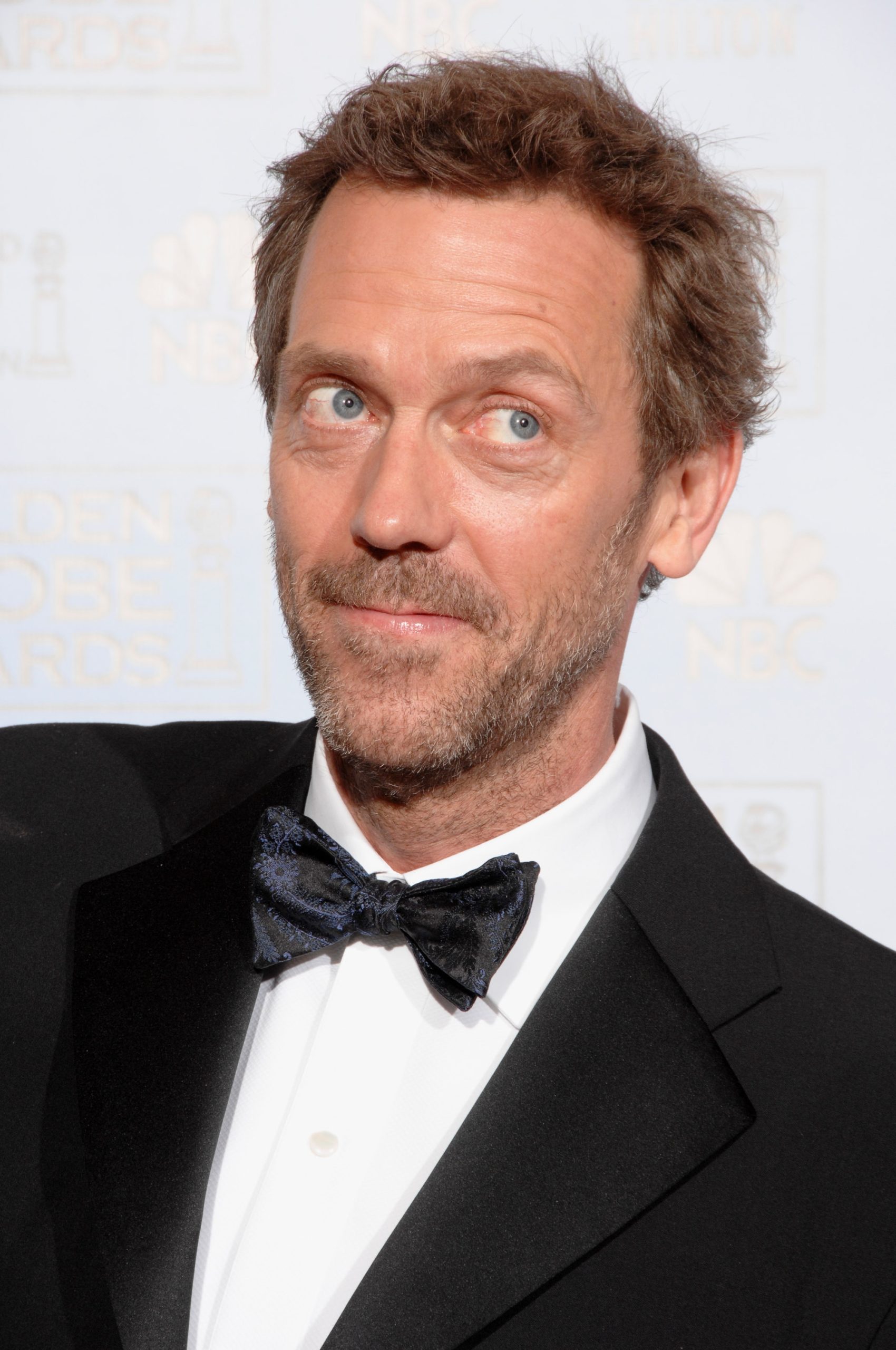
On this date in 1959, James Hugh Calum Laurie was born in Oxford, England. Laurie attended Eton College, where he competed in rowing, and later attended Cambridge University, where he studied anthropology. At Cambridge, Laurie joined Footlights, the student comedy society, where he met future collaborators Emma Thompson and Stephen Fry. He graduated in 1981 from Selwyn College with a degree in anthropology and archaeology.
After graduation he worked on a variety of comic television projects and had a recurring role in the third and fourth seasons of the popular sitcom “Blackadder” (1983-89). He and Fry wrote and starred in the sketch comedy series “A Bit of Fry and Laurie” (1987-95). Laurie also starred opposite Fry in the series “Jeeves and Wooster” (1990-93), adapted from P.G. Wodehouse‘s novels. (Laurie played the bumbling Bertie Wooster and Fry played the butler, Jeeves.)
Notable screen roles have included “Sense and Sensibility,” (1995) with Thompson and Imogen Stubbs, a frequent co-star. Laurie, whose father was a physician, is perhaps best known for his starring role on the U.S. drama series “House, M.D.” (2004-12). On “House” he played an infectious disease specialist and brilliant diagnostician. In a significant departure from the upper-class British characters he has played throughout most of his career, House has an American accent.
Laurie was raised Scottish Presbyterian and now identifies as an atheist. He once told The Times of London, “I admire the music, buildings and ethics of religion, but I come unstuck on the God thing.” (March 29, 2008) He and his wife, theater administrator Jo Green, have been married since 1989. They have three children. In 2011 he released an album of blues music recorded in New Orleans, entitled “Let Them Talk.” Laurie did vocals and piano on the album.
James Lipton: Do you share House’s skepticism?
Hugh Laurie: [laughing] I do. Big chunks of it, yes. I’m not a religious man. Again, I think this is connected to my father. My father was religious oddly enough, but I nonetheless I suppose was impressed by [and] enamored of his devotion to medical science. I find I am a fan of science. I believe in science.”— Laurie interview, “Inside the Actors Studio,” Bravo TV (July 31, 2006)
Anthony Bourdain
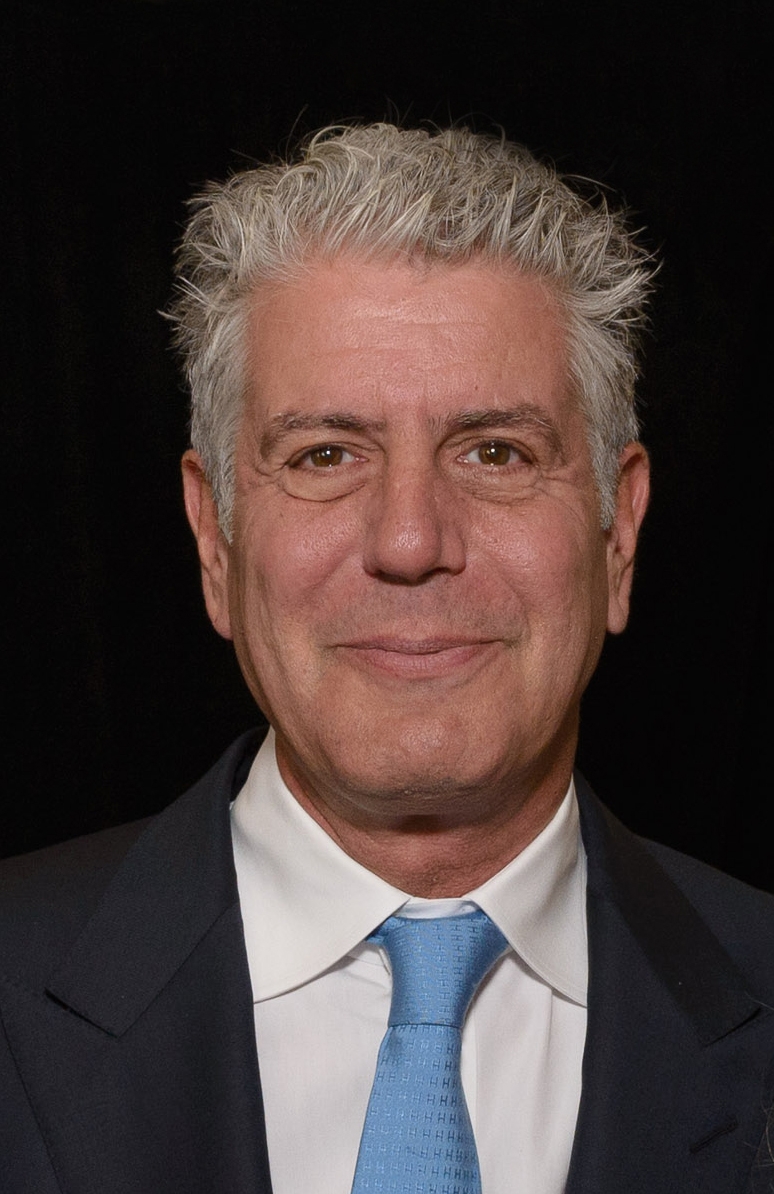
On this date in 1956, maverick chef, celebrity epicure, author and travel host Anthony Bourdain was born in New York City to Pierre and Gladys Bourdain. He grew up in New Jersey. Although his father was Catholic and his mother was Jewish, Bourdain was raised without religion. He graduated from Dwight-Englewood High School and attended Vassar for two years before dropping out. He started working at seafood restaurants in Provincetown, Mass., then graduated from the Culinary Institute in 1978 and began running kitchens in New York City.
In the 1990s, Bourdain became the executive chef at Brasserie Les Halles in Lower Manhattan where he served steak frites and onion soup. During his time working there, he sent an unsolicited article to The New Yorker detailing the gritty, subterranean world of urban restaurant culture.
To his surprise the article was accepted and noticed by book editors. This resulted in Bourdain’s memoir, Kitchen Confidential: Adventures in the Culinary Underbelly. The book branded Bourdain as a celebrity chef and earned him a new career on TV. Bourdain first hosted “A Cook’s Tour” on the Food Network before he spent eight seasons as a peripatetic host of Travel Channel’s “No Reservations,” on which he highlighted obscure cuisine and little-known restaurants.
On the show, Bourdain recharacterized line cooks as urban warriors and shined new light on a kitchen culture involving drugs, drinking and brutal hours. Bourdain was open about his past addictions with cocaine in the 1980s and alcohol abuse. He joined CNN in 2012 to host the show “Parts Unknown,” on which he explored political and historical topics with locals in countries across the globe often over food and drinks.
Bourdain earned multiple awards and nominations for his shows, including two Emmys for “No Reservations” and the Peabody Award in 2013 for “Parts Unknown.” He had the spirit of an activist and diplomat, advocated for marginalized populations and campaigned for safer working conditions for restaurant staffs. Several times on his television show, Bourdain mentioned that he didn’t believe in religion and was critical of religious hypocrisy.
Bourdain married his high school girlfriend in 1985 and they divorced in 2005. In 2007 he married Ottavia Busia, and they had a daughter born that same year. The couple separated in 2016. Bourdain began dating Italian actress Asia Argento in 2017 and, following her sexual abuse allegations against Harvey Weinstein, he became an ardent advocate against sexual harassment in restaurants and Hollywood.
While working on an episode for “Parts Unknown” in France, Bourdain committed suicide by hanging at age 61 in his Alsatian hotel room. (D. 2018)
“I’m closer to Hitchens’ view on this. Many of the world’s ills can be tracked back to [religion].”
— Bourdain, interview with NotQuiteNigella.com (May 2011)
Larry David
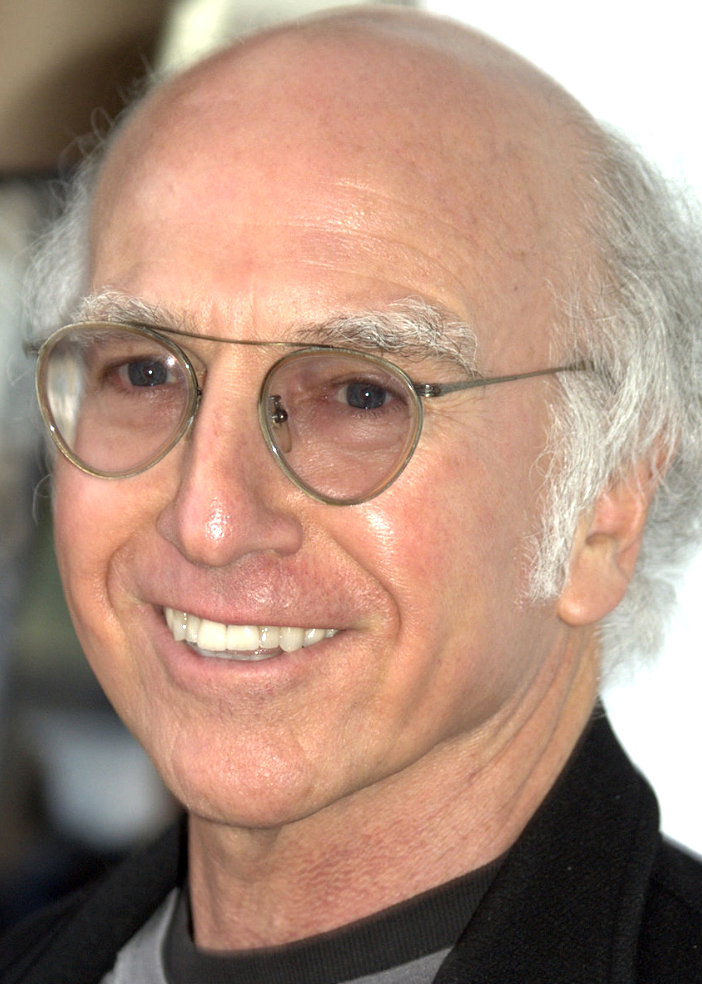
On this date in 1947, entertainer Lawrence Gene David was born in Brooklyn, N.Y., to Jewish immigrant parents: Regina (Brandes) and Mortimer David. After earning a history degree from the University of Maryland and enlisting in the U.S. Army Reserve, he worked as a stand-up comedian and was hired as a writer for NBC’s “Saturday Night Live” TV show.
He teamed in 1989 with comedian Jerry Seinfeld to create a pilot called “The Seinfeld Chronicles,” which became the successful sitcom “Seinfeld” and aired until 1998, winning David two Primetime Emmys for writing and best comedy in 1993. He wrote 62 episodes, appeared occasionally and was the inspiration for the character George Costanze. Syndication of “Seinfeld” earned David an estimated $250 million in 1998 alone.
The HBO Network aired David’s special “Larry David: Curb Your Enthusiasm” on Oct. 17, 1999. The series “Curb Your Enthusiasm,” described on its website as “Larry David, living the good life out in Los Angeles and stumbling through one faux-pas after another,” aired from 2000-2011. After a six-year hiatus, it returned in 2017. A tenth season started airing in 2020.
David married television producer Laurie Lennard in 1993 and was divorced in 2007. They have two daughters, Cazzie Laurel (b. 1994) and Romy March (b. 1996). David is nothing if not irreverent. In Curb Your Enthusiasm: The Book (2006), he is described as an atheist by author Deirdre Dolan.
The online American Catholic urged people to “pray for Larry David” after a 2009 “Curb” episode depicted him urinating so forcefully due to a medication he was taking that it spattered a picture of Jesus hanging in the bathroom at his assistant’s home. He didn’t wipe it off. When the assistant used the bathroom a few minutes later, she noticed the moisture and concluded Jesus was crying. She summoned her mother and they both fell to their knees in prayer.
David apologized for a 2017 “Saturday Night Live” monologue in which he mused whether he would “be checking out” the women in a German concentration camp had he been a prisoner. “I think I would. Of course, the problem is there are no good opening lines in a concentration camp: ‘How’s it going? They treating you OK? You know, if we ever get out of here, I’d like to take you out for some latkes.’ ”
David also wrote and starred in the 2015 Broadway play “Fish In The Dark,” which centered on the death of a family patriarch.
PHOTO: David at the 2009 Tribeca Film Festival; David Shankbone photo under CC 3.0.
“Religion should be made fun of. It’s quite ridiculous, isn’t it? This is how people spend their lives. They have no idea, then they go around as if this is a fact. It’s so insane, you know. If I really believed that stuff I’d keep it to myself, lest somebody would think I was out of my mind.”
— David, New York Times video interview in 2007
Kevin Bacon
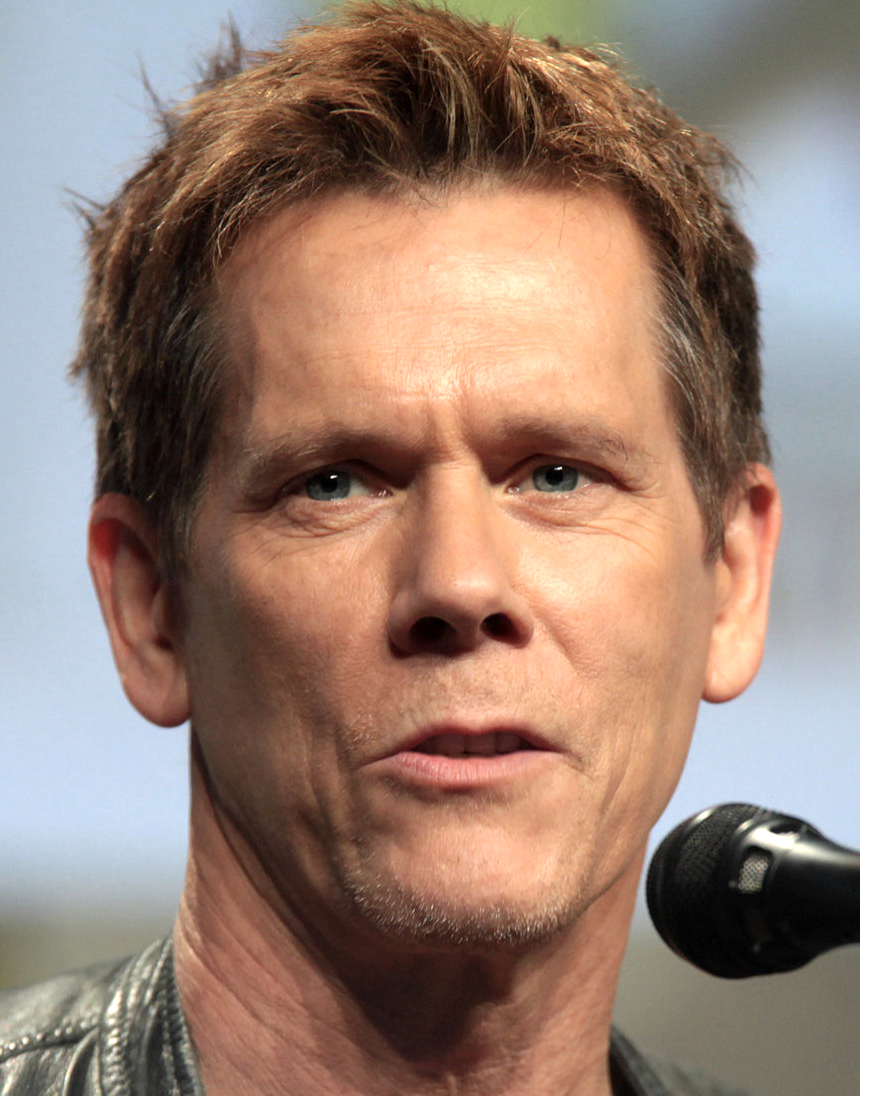
On this date in 1958, actor Kevin Bacon was born in Philadelphia. Bacon was educated at the Circle in the Square theater school in New York City and, after leaving home at 18, the Manning Street Actor’s Theater. At age 20, Bacon debuted as Chip Diller in “Animal House” (1978). Bacon later appeared in a wide range of movies, including “Friday the 13th” (1980), “Diner” (1982), “Footloose” (1984), and “A Few Good Men”(1992). He played atheist character David Labraccio in “Flatliners” (1990).
His prolific acting career is the basis for the trivia game “Six Degrees of Kevin Bacon,” in which players try to connect any person who has appeared in a film to Kevin Bacon through six or less degrees of separation. He has also worked as a director, directing his first film, “Losing Chase,” in 1996. He is a member of the band The Bacon Brothers along with his brother Michael. Bacon and actress Kyra Sedgwick married in 1988 and have two children, Travis, born in 1989, and Sosie, born in 1992.
In a 2005 interview with The Times of London, Bacon said, “I don’t believe in God.” Along with being a nonbeliever, Bacon is passionate about church-state separation. The Bacon Brothers were featured in the 2008 film “Everything You Always Wanted to Know About Separation of Church and State (But Were Afraid to Ask),” in which they performed their song “Children.”
The song speaks out about the harm inflicted on children by religious violence, with lyrics such as “Please don’t hurt the children, please lay down the rod / Please don‘t send your bombs in and say you‘re doing the work of God.” “It has to do with God and war and how they get jumbled up sometimes, and how a lot of times it is the children that suffer from the combination of those two things,” Bacon said during an interview at the time.
PHOTO: Bacon speaking at the 2014 San Diego Comic-Con; Gage Skidmore photo under CC 2.0.
“I think there is a puritanical wind that is blowing. I have never seen such a lack of separation between church and state in America.”
— Bacon, interviewed by The Times of London (2005)
Linda Ronstadt
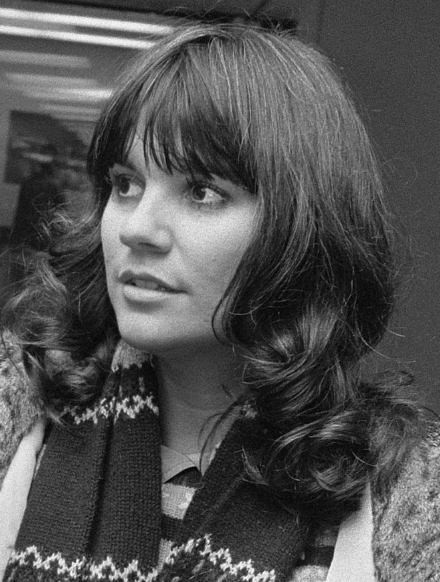
On this date in 1946, singer Linda Maria Ronstadt was born in Tucson, Ariz., to Gilbert and Ruth Mary (Copeman) Ronstadt. The Ronstadts were a prosperous family with long ties to the area. Linda’s parents were both musically inclined and, at age 14, she formed a folk trio with her brother Peter and sister Suzy. After a stint at the University of Arizona, she moved to Los Angeles and joined the Stone Poneys (biggest hit, “Different Drum”). Her first solo album came in 1969 and from there her career took off, with Cashbox naming her the top-selling female singer of the 1970s.
Her vocals ranged from contralto to soprano, and over the years her mastery of different musical genres was equally impressive. She has recorded 30 albums, received 11 Grammys and was inducted into the Rock and Roll Hall of Fame in 2014. She was nominated for Tony and Golden Globe awards for her performance in “Pirates of Penzance.” Diagnosed in 2011 with Parkinson’s disease, she was forced to retire. “I can’t sing at all,” she told The New York Times in August 2013. “I’m truly not able. I can’t sing ‘Happy Birthday,’ really.”
Ronstadt has never married, although her relationship with California Gov. Jerry Brown in the late 1970s landed them on the cover of People magazine. She later dated comedian Jim Carrey and was engaged to “Star Wars” director George Lucas. “I’m very bad at compromise, and there’s a lot of compromise in marriage,” she told the Times.
She adopted an infant girl, Mary Clementine, in 1990, when she was 44, and her son Carlos in 1994. Ronstadt’s public support of liberal causes, including immigrants’ rights, has led to praise and criticism. An early champion of gay rights and marriage equality, she told PlanetOut in August 2009 that “homophobia is anti-family values. Period, end of story.”
She titled her 2013 autobiography Simple Dreams: A Musical Memoir after her 1977 album “Simple Dreams.” In the book she wrote: “I am not religious, but a rehearsal room can seem like a hallowed space; a place for transformation. A performer enters it at his peril.” Asked about her religious beliefs on “The Tavis Smiley Show” (Sept. 26, 2013), she replied, “I’m a spiritual atheist.”
Her book with Lawrence Downes titled “Feels Like Home: A Song for the Sonoran Borderlands” was published in 2022. Asked if she was no longer a practicing Catholic, she replied with a smile: “I’m a practicing atheist. But I like this pope and I think he would do more if he could.” (San Diego Union-Tribune, Sept. 22, 2022)
PHOTO: Ronstadt in 1976; Dutch National Archives.
“Linda went to Catholic school, but it didn’t take. ‘I was an atheist by third grade,’ she told me, though there is a Haitian goddess she prays to, for President Obama.”
— Lawrence Downes, New York Times interviewer, Dec. 27, 2013
Adam Savage
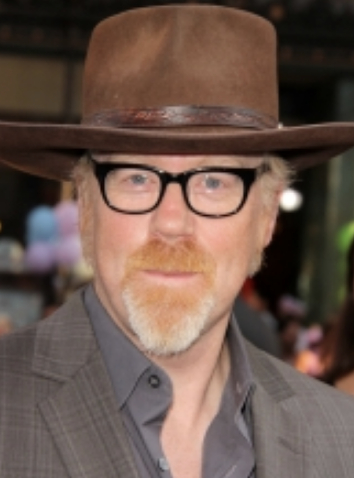
On this date in 1967, Adam Savage was born in New York City. Savage was raised in North Tarrytown, N.Y., now known as Sleepy Hollow. “I’m actually the fourth generation in my family to have no practical use for the church, or God, or religion. My children continue this trend.” (Savage in a speech to Harvard humanists, April 2010)
He worked as an actor when he was a child, but started working in special effects when he was 19. Savage constructed mechanical effects for theatrical productions and worked as a model maker on several films, including the new “Star Wars” movies and “Space Cowboys,” before being offered the opportunity from the Discovery Channel to create and host the show “Mythbusters” with Jamie Hyneman, another special effects veteran.
On “Mythbusters,” Savage and Hyneman, along with their staff, investigate myths and rumors through experimentation. Though “Mythbusters” does not investigate claims about the supernatural, as they are often non-disprovable, Savage and his co-host are openly nonreligious, and both were awarded the Harvard Humanist Chaplaincy’s Lifetime Achievement Award in Cultural Humanism.
Savage was a 2018 recipient of FFRF’s Emperor Award for his “plain speaking” about religion’s foibles.
“The idea of an ordered and elegant universe is a lovely one. One worth clinging to. But you don’t need religion to appreciate the ordered existence. It’s not just an idea. It’s reality. We’re discovering the hidden orders of the universe every day. The inverse square law of gravitation is amazing. Fractals, the theory of relativity, the genome: these are magnificently beautiful constructs.”
— Savage in his acceptance speech as Harvard humanist chaplain (April 2010)
Maya Rudolph

On this date in 1972, entertainer Maya Khabira Rudolph was born in Gainesville, Fla., to composer-producer Richard Rudolph, a secular Ashkenazi Jew, and African-American singer-songwriter Minnie Riperton. Her great-grandfather had changed the family name from Rudashevsky and was a founding member of a Conservative synagogue in Pittsburgh, Pa.
Riperton died of breast cancer at age 31 when Rudolph was 7 and her dad became her primary caretaker. In Riperton’s song “Lovin’ You,” which topped the Billboard 100 in 1975, she sings “Maya” over and over near the end (heard on the album track but not the shorter radio version). Rudolph called her parents “hippies” and her agnostic dad a “pretty adorable Jew” in a New York Times Magazine profile (Sept. 14, 2018). “The family was committedly unreligious,” according to the article.
Rudolph attended the University of California-Santa Cruz and received a B.A. in photography from Porter College in 1995. She was a recurring cast member who often made use of her vocal talent on “Saturday Night Live” from 2000 to 2007 after a stint as a member of The Groundlings improvisational group. She was the fourth black woman to join the cast since the show’s 1975 debut and made numerous “SNL” guest appearances after leaving the show.
She has performed in movies and TV series, including “50 First Dates” (2004), “A Prairie Home Companion” and “Idiocracy” (2006), “Grown Ups” (2010), “Bridesmaids” (2011), “Up All Night” (2011-12), “The Maya Rudolph Show” (2014) and “Maya and Marty” (2016). In 2018 she started co-starring in and co-producing the Amazon web TV series “Forever” with Fred Armisen. Her appearance on “The Good Place” on NBC in 2018 earned her an Emmy nomination for Outstanding Guest Actress in a Comedy Series.
Rudolph has been in a relationship with director Paul Thomas Anderson since 2001. They have three daughters and a son: Pearl (b. 2005), Lucille (born 2009), Jack (b. 2011) and Minnie (b. 2013).
PHOTO: Rudolph, 29, at the VH1/Vogue Fashion Awards in New York in 2001; photo via Shutterstock by Everett Collection
“I remember my mom not even saying ‘God bless you.’ She’d say, ‘Guhbless you’ because she didn’t want us to say ‘God.’ ”
— Rudolph, New York Times Magazine (Sept. 14, 2018)
Peter O’Toole
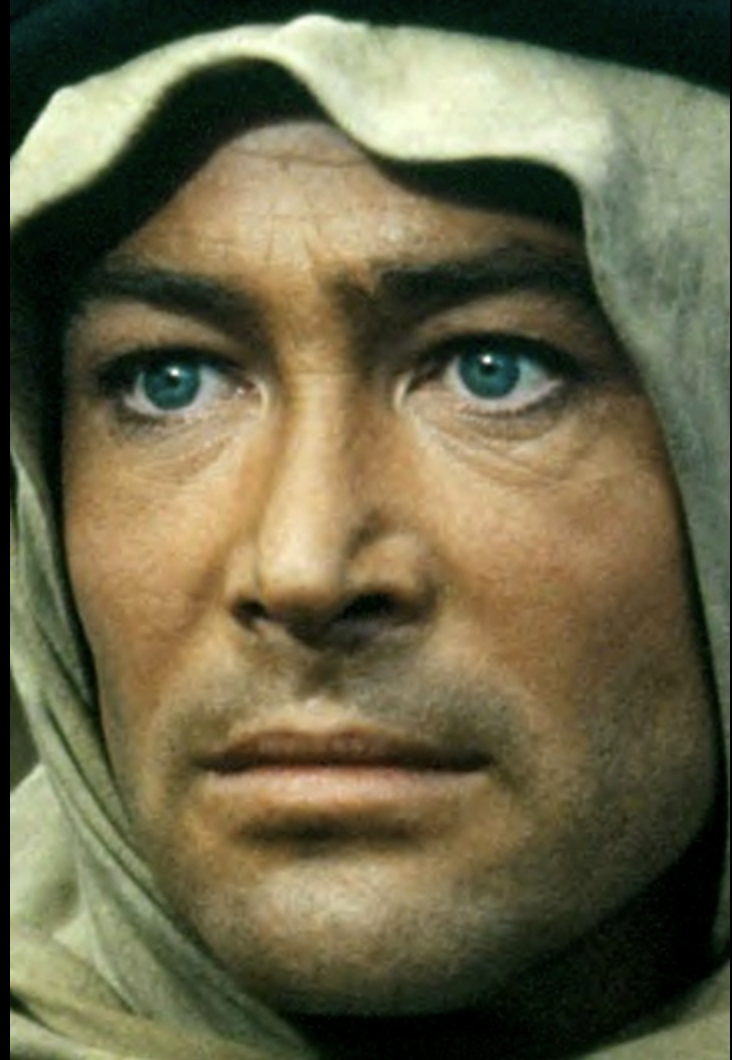
On this date in 1932, Peter O’Toole was born in Connemara, Ireland. When he was 16 he began working at the Yorkshire Evening News, but his journalism career was cut short when he was drafted into the navy. O’Toole later attended the Royal Academy of Dramatic Art, where he began acting in the theater. Starting in 1955, he spent three years apprenticing as a Shakespearean actor with Bristol Old Vic, a prominent theater company in Bristol, where he performed in over 70 productions.
O’Toole acted in his first film, “The Savage Innocents,” in 1960. The role that brought him to fame was his portrayal of T.E. Lawrence in the 1962 classic “Lawrence of Arabia.” O’Toole has since starred in many other notable films, including “Becket” (1964), “The Lion in Winter” (1968), “Goodbye, Mr. Chips” (1969) and “The Stunt Man” (1980). He received eight Best Actor Oscar nominations and in 2003 was awarded a Lifetime Achievement Oscar. O’Toole was married to actress Siân Phillips for 20 years and had two children with her, actress Kate O’Toole, born in 1960, and Patricia O’Toole, born in 1963. He also has a son, Lorcan, born in 1983.
O’Toole described himself as a “retired Christian” to The New York Times in 2007, as well as during an interview with Charlie Rose on PBS in 2008. He told the Times that he prefers “an education and reading and facts” to faith. In 1972 he played a delusional character who believed he was Jesus in the film “The Ruling Class.” During the film, O’Toole’s character says, “When did I realize I was God? Well, I was praying and I suddenly realized I was talking to myself.” (D. 2013)
PHOTO: O’Toole in “Lawrence of Arabia” in 1962.
“I am a retired Christian.”
— "Papal Robes, and Deference, Fit O'Toole Snugly" (New York Times, July 26, 2007)
Michael Terence Wogan
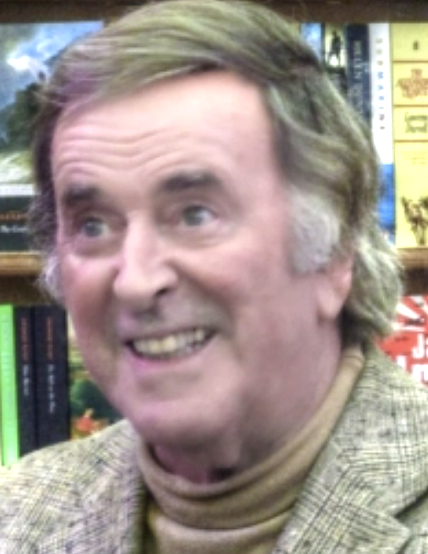
On this date in 1938, Michael Terence “Terry” Wogan was born in Limerick, Ireland. When he retired from his BBC Radio morning program “Wake Up to Wogan” in 2009, he had about 8 million listeners, making it the most popular radio broadcast in Europe. He had started his career in 1963 with Radio Éireann, the Irish national broadcaster. He was educated by Salesian nuns in primary school and later at Crescent College and Belvedere College, both Jesuit schools.
In 1966, when his daughter Vanessa died at 3 weeks of age, his wife sought refuge in Catholicism but the tragedy cemented his nonbelief, Wogan said in 2005. He called losing his faith at age 17 a relief. Interviewed by New Internationalist magazine on Aug. 1, 2004, he said, “There were hundreds of churches, all these missionaries breathing fire and brimstone, telling you how easy it was to sin, how you’d be in hell. We were brainwashed into believing.”
Wogan branched out from strictly radio work to television game and interview shows. He was also the voice of the Eurovision Song Contest for many years and was involved with and hosted the Children in Need telethon since its inception in 1980. He acquired dual British citizenship in 2005, the same year he was knighted. “There was no one better at being a friend behind the microphone than Sir Terry,” said fellow broadcaster Simon Mayo. Wogan said the two most important attributes a person could have were kindness and family. He and his wife Helen Joyce had four children. He also wrote a column in The Sunday Telegraph for many years and wrote several books, including the autobiographies Is It Me? and Mustn’t Grumble.
When he died of cancer at age 77, The Telegraph’s obituary said he was “the most popular and best-loved broadcaster in Britain for more than three decades, confecting a middlebrow, old-fashioned brand of gentle Irish whimsy that barely concealed his forthright and often antagonistic views about the BBC and the people who run it.” (D. 2016)
PHOTO: Wogan at the 2015 Cheltenham Literature Festival; Julie Anne Johnson photo under CC 2.0.
“I’m afraid I don’t believe in God. My mother was devout and so is my wife. But I have the intellectual arrogance that makes it very hard to believe in him. I don’t have the gift of faith. I remember at school I used to make up sins at confession. What we were told were sins by priests were not sins at all.”
— The Sunday Independent (May 8, 2005)
The Amazing James Randi
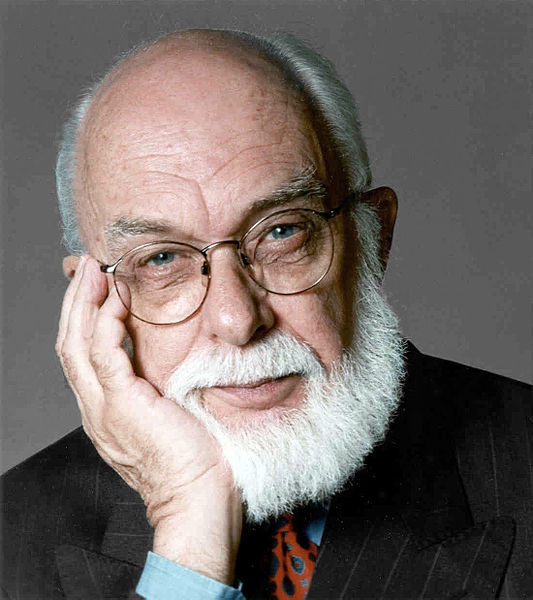
On this date in 1928, Randall James Hamilton Zwinge, known as the Amazing James Randi, was born in Toronto, Canada. Randi used his international reputation as a magician and escape artist to investigate and expose claims of the paranormal. He exposed both psychic “spoonbender” Uri Geller and “faith-healer” Peter Popoff on “The Tonight Show” hosted by Johnny Carson. His numerous awards and recognitions include a “Genius” Fellowship from the John D. and Catherine T. MacArthur Foundation in 1986. In 1993, PBS-TV’s “NOVA” dedicated a one-hour special to coverage of Randi’s work, particularly his investigations of Geller and various occult and healing claims being made by scientists in Russia.
His books included: The Truth About Uri Geller, The Faith Healers, Flim-Flam! and An Encyclopedia of Claims, Frauds, and Hoaxes of the Occult and Supernatural. Randi was a founding fellow of CSICOP, the Committee for the Scientific Investigation of Claims of the Paranormal. He established the James Randi Educational Foundation in 1996. The foundation offered a $1 million standing prize to any eligible applicant who could demonstrate evidence of any paranormal, supernatural or occult power or event under test conditions agreed to by both parties. A version of the challenge, similar to one that freethinker Harry Houdini was part of in the early 20th century, was first issued in 1964. More than a thousand persons took up the challenge and all failed. The foundation ended the challenge in 2015.
Randi retired at age 87. He had come out as gay at age 81 in 2010, announcing: “This declaration of mine was prompted just last week by seeing an excellent film — starring Sean Penn — that told the story of politician Harvey Milk. … I’m in excellent company: Barney Frank, Oscar Wilde, Stephen Fry, Ellen DeGeneres, Rachel Maddow, are just a few of those who were in my thoughts as I pressed the key that placed this on Swift and before the whole world.” He died at age 92. (D. 2020)
PHOTO: James Randi Educational Foundation under CC 2.0.
“[T]here are two sorts of atheists. One sort claims that there is no deity; the other claims that there is no evidence that proves the existence of a deity. I belong to the latter group, because if I were to claim that no god exists, I would have to produce evidence to establish that claim, and I cannot.”
— James Randi, newsletter at randi.org (Aug. 5, 2005)
Stephen Fry
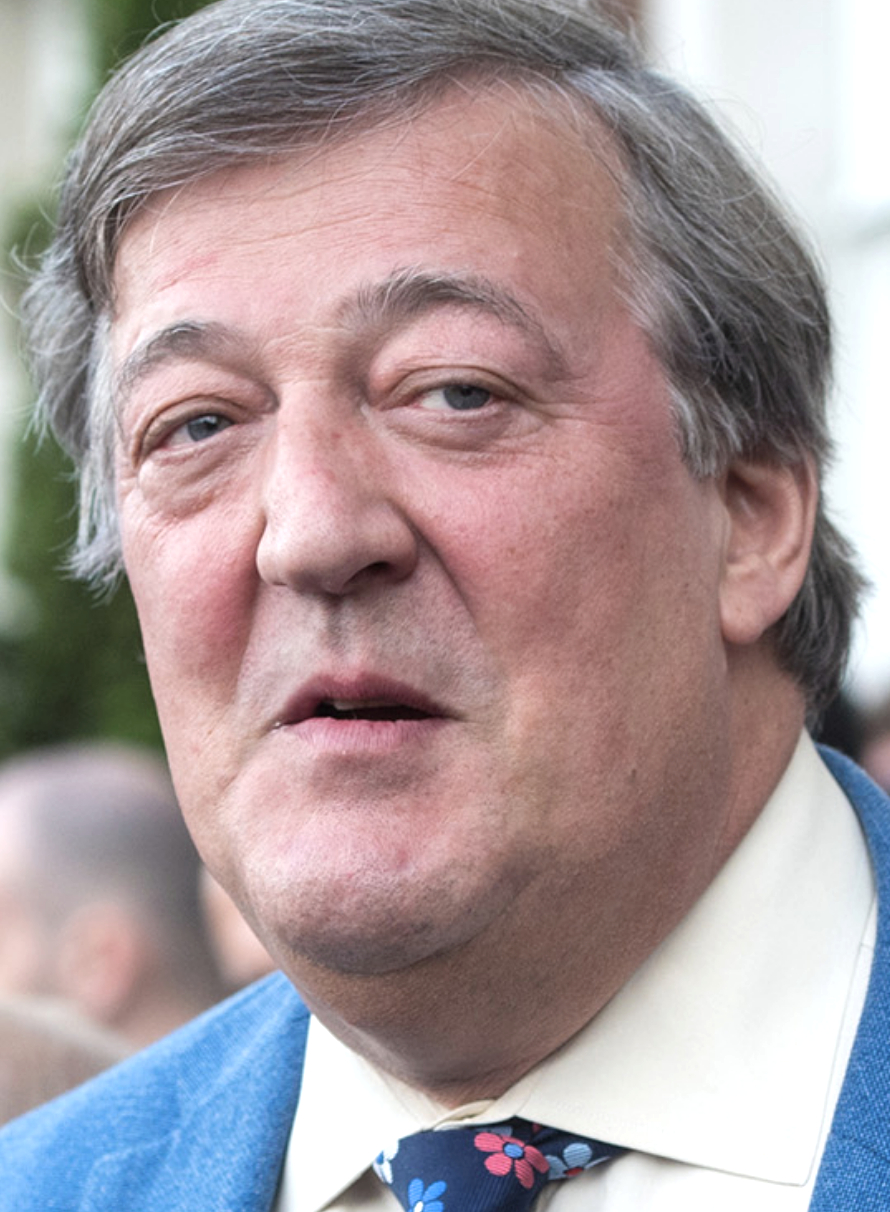
On this date in 1957, Stephen Fry was born in London, England. He grew up in Norfolk. At age 17, after leaving school, he was convicted of credit card fraud. After serving time in prison, Fry studied at City College Norfolk with the intention of sitting entrance exams for Cambridge, where he received a scholarship. At Cambridge, he performed in the Cambridge Footlights Review with Emma Thompson and Hugh Laurie.
Fry and Laurie continued their comedic collaboration outside of school, including the sketch comedy show “A Bit of Fry and Laurie,” for the BBC, which had six seasons between 1986 and 1995. From 1990 to 1993, Fry and Laurie also starred in “Jeeves and Wooster” (Fry played Jeeves). Fry has had a wide-ranging career in acting, comedy and writing.
He is very active in social media, preferring to speak directly to his fans whenever he can, such as through Twitter and on his personal website. In 2003 Fry began hosting the BBC television panel comedy game show “QI.” Fry has been openly gay for his entire professional life and advocates for gay rights. He grew up in an atheist home but had a brief flirtation with Christianity as a teen after reading C.S. Lewis’s Screwtape Letters and works by G.K. Chesterton.
But as an adult he returned to atheism and is very open about his nonbelief, describing the Christian God as “utterly evil, capricious and monstrous” in an interview with The Guardian in February 2015.
In 2011 he received a Lifetime Achievement Award in Cultural Humanism from the Humanist Chaplaincy at Harvard and the American Humanist Association. In February 2015, Fry stated on the Irish television show “The Meaning of Life,” “Why should I respect a capricious, mean-minded, stupid God who creates a world which is so full of injustice and pain?”
Asked how he would react if he was locked outside the pearly gates, he responded, “I would say, ‘Bone cancer in children? What’s that about?’ Because the God who created this universe, if it was created by God, is quite clearly a maniac, utter maniac. Totally selfish. We have to spend our life on our knees thanking him? What kind of God would do that?”
After a viewer made a formal complaint in 2017, police in the Republic of Ireland started prosecution charges for blasphemy against him, invoking Ireland’s controversial new Defamation Act, which made blasphemy punishable by a fine of 25,000 euros. After the announcement set up an international outcry, the prosecution was dropped, ironically because, it was stated, that “there were no injured parties.” Nearly 65% of voters voted in 2018 to repeal the blasphemy law.
PHOTO: Fry in 2016; U.S. State Department photo
“I love how when people watch I don’t know, David Attenborough or Discovery Planet type thing you know where you see the absolute phenomenal majesty and complexity and bewildering beauty of nature and you stare at it and then … somebody next to you goes, ‘And how can you say there is no God? Look at that.’ And then five minutes later you’re looking at the lifecycle of a parasitic worm whose job is to bury itself in the eyeball of a little lamb and eat the eyeball from inside while the lamb dies in horrible agony and then you turn to them and say, ‘Yeah, where is your God now?’ ”
— Fry, bigthink.com interview (Dec. 17, 2009)
Shirley Manson
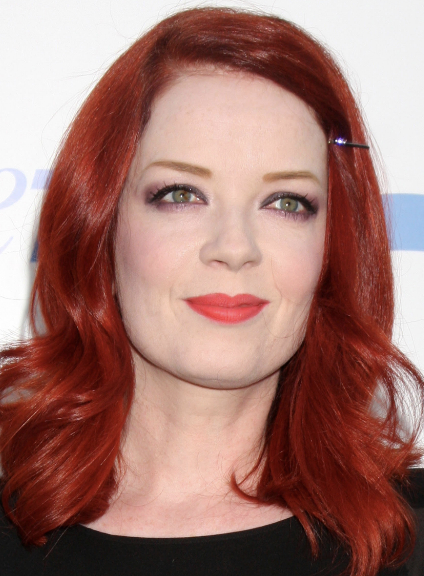
On this date in 1966, musician-songwriter Shirley Ann Manson was born in Edinburgh, Scotland, to big band singer Muriel (MacKay) and John Manson, a university lecturer. Manson started her music education in primary school with lessons for piano, recorder, clarinet and violin. She took part in amateur dramatic and musical performances in secondary (high) school.
Bullied and suffering from depression as a teen, she rebelled and started skipping school. She worked for several years in the retail sector and as a waitress while singing with local groups. Manson sang backing vocals and played keyboards for the band Goodbye Mr Mackenzie and then recorded albums with the group’s side project performing as Angelfish.
Drummer and co-producer Butch Vig of the alternative rock band Garbage was impressed with her musical abilities and stage presence and invited her to join the band. The 1995 debut album “Garbage” sold 4 million copies and was followed by five studio albums, with Manson assuming most of the songwriting duties. The first four albums were recorded at Smart Studios in Madison, Wis. (also FFRF’s home turf). Garbage toured worldwide and sold 12 million records over 10 years.
In 2009 she announced she was stepping away from music but the hiatus was brief. She performed with The Pretenders, Iggy Pop, Incubus and Kings of Leon, Gwen Stefani and No Doubt. Manson and Garbage reunited to record the albums “Not Your Kind of People” and “Strange Little Birds” in 2012 and 2016. A 2019 Irish Times story (“Garbage in Dublin: Manson emerges on stage, an absolute badass”) reviewed her contralto voice as “note-perfect” 24 years after joining Garbage.
In July 2019 she was announced as the host of the new seven-episode podcast “The Jump” featuring conversations with musicians about “the moments in an artist’s career where they decide to take a leap into something new, and after that, nothing is the same.”
Manson was married to Scottish artist Eddie Farrell from 1996 to 2003. She married record producer and Garbage sound engineer Billy Bush in Los Angeles in 2010. She has been actively involved in several charitable endeavors, including raising money for HIV-AIDS and children’s cancer research, Haiti hurricane relief efforts and People for the Ethical Treatment of Animals.
She told Rolling Stone magazine in 1998 that she’s an atheist: “The perverse thing about my spiritual growth as a child was that my father was my Sunday school teacher. We grew up very much under Scottish Presbyterian schooling. I went to church every Sunday and when I was about 12, I had a huge fight with my father over the dinner table. I’m screaming at him that religion’s a sham, it’s crazy and I’m not going to church anymore, it’s just bullshit.”
Photo: Manson in 2010 at PETA’s 30th anniversary gala at the Hollywood Palladium. Image via Shutterstock by Kathy Hutchins.
ROLLING STONE: Do you believe in God?
MANSON: No, not at all.— Manson interview with Rolling Stone magazine (September 1998)
Charlie McDonnell
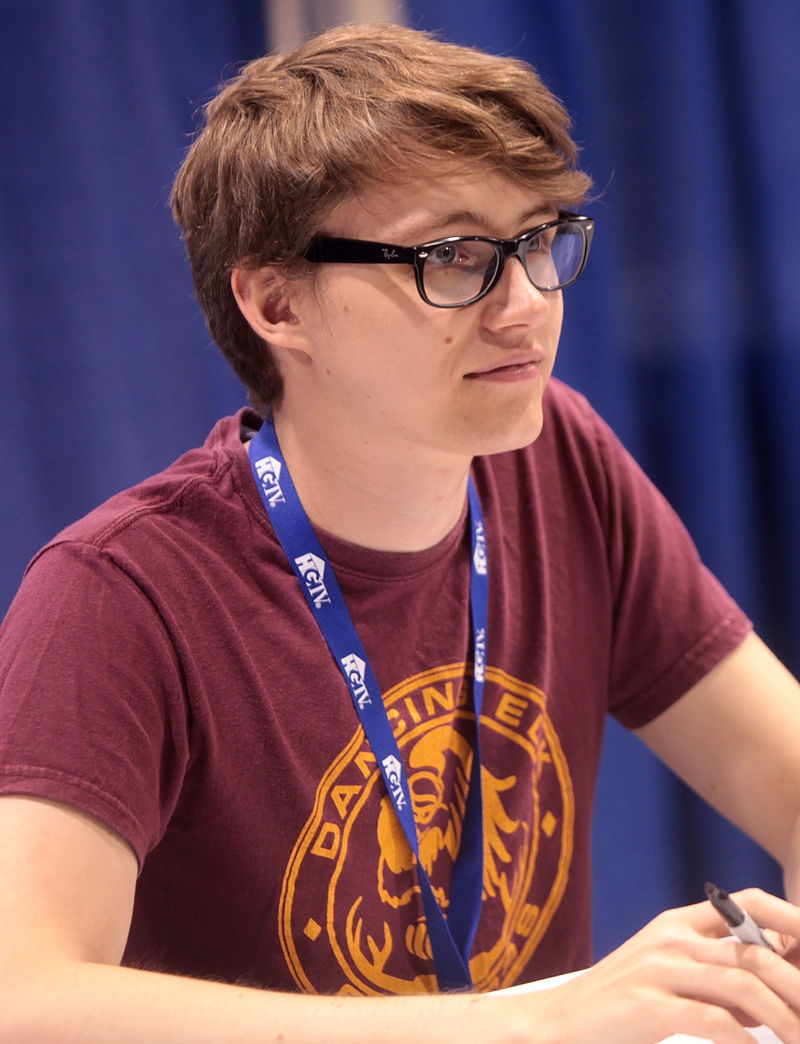
On this date in 1990, Charlie McDonnell was born in Bath, England, where he grew up. In 2007, while bored studying for exams, he started making videos for his YouTube channel, “charlieissocoollike.” The channel became incredibly popular and in 2013 reached 2 million subscribers.
As a musician he was a member of the Doctor Who-themed rock band Chameleon Circuit and of the short-lived project Sons of Admirals. He directed a series of short films in 2013-14 and co-hosted the YouTube breakfast show “Cereal Time” with fellow vlogger Jimmy Hill in 2015-16. In 2016 he published his first book, Fun Science.
McDonnell occasionally performs humorous songs, usually accompanying himself on the ukulele. He addresses scientific themes in songs like “A Song About Monkeys” about evolution and “Chemical Love,” on the physical origins of human emotion. In “A Song About Monkeys” he tells a gorilla: “You’re my favorite animal, but I’m biased I guess, because you look quite a bit like me. … You’re just like me, ’cause I’m an animal. We’re of the same biology.”
McDonnell often addresses scientific ideas from a rational perspective in his videos and calls himself an atheist. In 2017 he moved to Canada, his girlfriend’s homeland. He announced on Twitter in March 2019 that he was quitting YouTube posting to pursue screenwriting.
PHOTO: By Gage Skidmore under CC 3.0.
FAN BLOG (rating McDonnell’s “hotness points”):
FAITH: Unknown but believed to be an atheist.
McDONNELL: I am an atheist.
FAN BLOG: Minus 50 points.
McDONNELL: Oh well, reason loses again.— 2010 video on McDonnell's YouTube channel
Roy Zimmerman
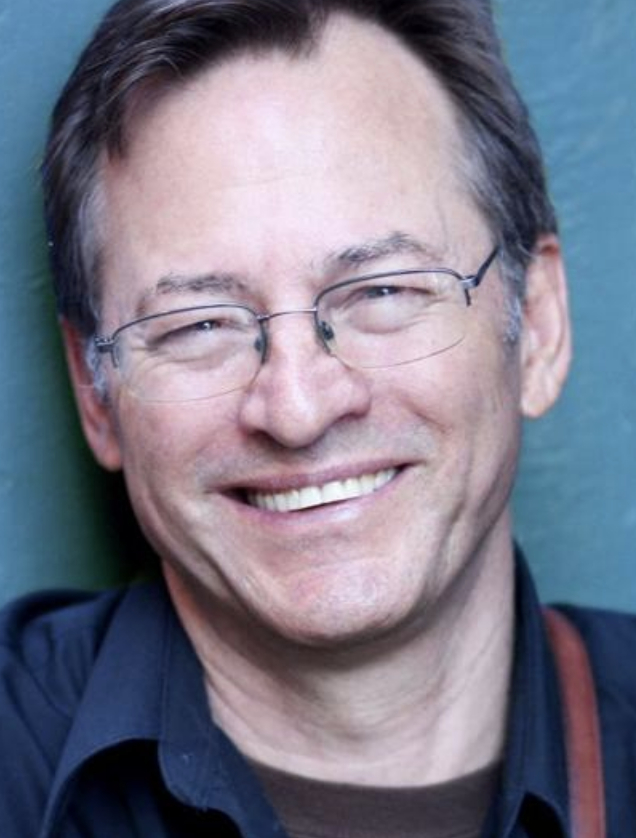
On this date in 1957, satirist and singer-songwriter Roy Zimmerman was born in San Francisco and was raised “in a cult,” he quips. “It was called Lutheranism.” After a time as his church’s choir director as a young adult, he “drifted into other waters.”
Zimmerman wrote a series of satirical musical revues in the 1980s that were produced by the San Jose Repertory Theatre, including YUP! (1984), UP the YUP (1985) and YUP It UP! (1986). They parodied the excesses of the evolving yuppie culture in the Silicon Valley. In 1996 he founded a satirical folk quartet named The Foremen that performed at the national conventions of both major political parties.
He continued to work as a solo performer with liberal and irreligious points of view. “I write satire because I want to use humor to do serious work. I’m often accused of preaching to the converted, but I don’t think of it that way. I think of it as entertaining the troops,” Zimmerman said. “If we ever attain a worldwide consciousness of peace and justice, I’ll be happily out of a job.”
He performed at the Rock Beyond Belief concert in 2012 at Fort Bragg, N.C., and at FFRF’s 2017 national convention. His song “The Liar Tweets Tonight” in various versions has had over 11 million video views as of this writing in 2020. In 2019 he released his 10th studio album, “RiZe Up.” He and his wife Melanie Harby have co-written an estimated 1,000 songs, live in Marin County, Calif., and tour extensively. Their best collaboration, Zimmerman said, is their two sons, Joe and Sam.
Harby is an award-winning bluegrass guitar player and was an original Broadway cast member of the musical “Quilters” in 1984. She worked as a guitar tech for Joni Mitchell and was her research assistant on the 31-track “Hits” and “Misses” recording project.
Richard Dawkins has called Zimmerman “a modern-day Tom Lehrer.” Asked if being openly atheist has caused him problems as a performer, he said: “It’s important, I think, to present these ideas, whether they be religious or political or just social satire, in a way that’s inviting, in a way that brings people into your argument. The implicit argument is not here’s what I think and you should think that, too. The implicit argument is here’s what I find absurd, don’t you?” (“Freethought Matters,” Oct. 29, 2020)
On that episode of FFRF’s TV talk show, Zimmerman sang his song “I Want a Marriage Like They Had in the Bible” and commented, “As Dan [Barker] was saying, if people were to harken to what the bible actually has to say about marriage, they’d be horrified. For you and I actually read the bible. A lot of believers don’t.”
Freedom to oppress
In the name of righteousness
Religious freedom to scratch where it itches
Religious freedom to burn our own witches.— Chorus of the 2015 Zimmerman-Harby song "Religious Freedom"; D.C. Anderson photo
Joy Behar
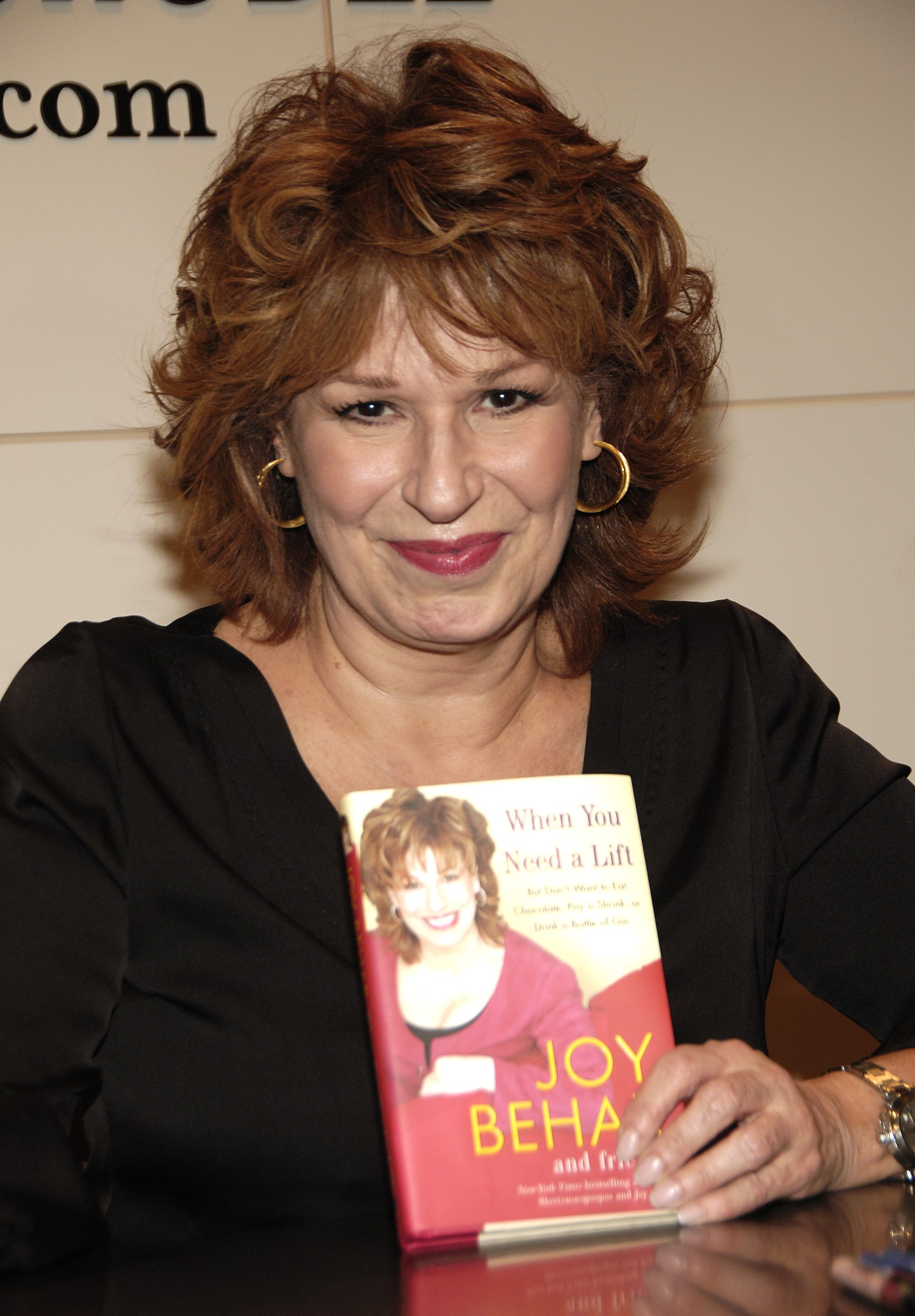
On this date in 1942, Joy Behar (née Josephina Victoria Occhiuto) was born in Brooklyn, N.Y. Behar earned a bachelor’s in sociology from Queens College (1964) and a master’s in English education from the State University of New York at Stony Brook (1966). She taught high school English in the late 1960s and early 1970s before becoming a stand-up comedian and radio talk show host. She appeared in “Manhattan Murder Mystery” with Woody Allen in 1993.
Behar is perhaps best known as an original cast member of the daytime show “The View.” It debuted in 1997 has been nominated for Daytime Emmy Awards for Outstanding Talk Show almost every year since, winning in 2009. Joy Shtick — Or What Is the Existential Vacuum and Does It Come with Attachments? (1999) features her humorous essays. Her children’s book, Sheetzucacapoopoo: My Kind of Dog, was published in 2006. She was a frequent guest host on CNN’s “Larry King Live” from 2007-09.
In 2009 she launched her own evening talk show, “The Joy Behar Show,” on CNN’s HLN network. Behar has one daughter, Eve, from her marriage (1965-81) to Joe Behar. She has been with partner Steve Janowitz since 1982.
Raised Catholic, she now identifies as agnostic. She jokingly said she lost her faith when she “went to the Commie school Queens College.” She told an ABC News’ “Focus on Faith” interviewer in 2011, “I’m sustained by my family, my life, my brain. But I don’t believe there’s an afterlife.” In the same interview, she said, “I never gave [my daughter] any religion, because I felt that I was brainwashed.”
“I’m pathetically pragmatic. … I don’t believe that there’s a higher power that created human beings.”
— Behar interview with Fr. Edward Beck, ABC News "Focus on Faith" (March 17, 2011)
Andy Richter
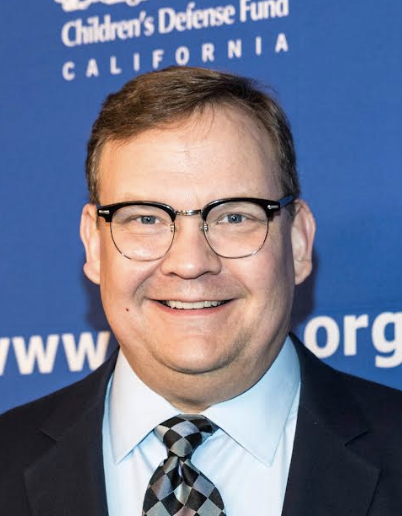
On this date in 1966, entertainer Paul Andrew Richter was born in Grand Rapids, Mich., to Glenda (Palmer) Swanson, a kitchen designer, and Laurence Richter, a Russian language teacher at Indiana University. He grew up in Ilinois, where he was Yorkville High School prom king (the school where future U.S. House Speaker Dennis Hastert was accused and convicted of molesting his wrestling team members).
Richter’s parents divorced when he was 4, and his father later came out as gay. He attended the University of Illinois at Urbana–Champaign and Columbia College Chicago as a film major. He worked as a production assistant on commercial shoots, took acting classes and started writing for television. After playing Mike Brady in “The Real Live Brady Bunch,” a staged version of the ’70s TV sitcom, he was hired as a writer for “Late Night with Conan O’Brien,” which debuted in 1993. He soon became O’Brien’s sidekick. The show aired until 2009 but Richter left in 2000 to pursue an acting career.
His first major venture, Fox’s “Andy Richter Controls the Universe,” was canceled after two mid-season runs. “Quintuplets,” also on Fox, lasted one season. His 2007 series, “Andy Barker P.I.,” was co-written and produced by O’Brien. NBC canceled the show after six episodes.
In 2009 he rejoined O’Brien on NBC as the announcer for “The Tonight Show with Conan O’Brien,” also writing and performing in sketches. When Jay Leno moved from prime time to again host the later “Tonight Show” time slot, Richter joined O’Brien on “Conan” on TBS in 2010. The series finale aired in June 2021. He started his own podcast, “The Three Questions with Andy Richter,” on the Earwolf network in 2019. Guests are asked: Where do you come from? Where are you going? What have you learned?
In January 2017 he began hosting the ABC game show “Big Fan” produced by Jimmy Kimmel. Only four episodes aired, with guests Matthew McConaughey, Aaron Rodgers, Kim Kardashian West and Kristen Bell. He has also had numerous roles non-recurring roles in TV and film. “The Incredibly Inaccurate Biography of Andy Richter” is an Audible Original audiobook divided into “chunks” of his actual life. He was scheduled as a contestant on “Celebrity Wheel of Fortune Season 2” set to debut in September 2021 on ABC.
As of this writing, Richter holds the record for highest one-day score on “Celebrity Jeopardy!” He won $68,000 on the 2009-10 season’s “Jeopardy! Million Dollar Celebrity Invitational” and donated his earnings to the St. Jude Children’s Research Hospital.
Richter was married to actress and writer Sarah Thyre from 1994 to 2019. Before divorcing, they had a son, William Oscar (b. 2001), and a daughter, Mercy Josephine (b. 2007). Richter is a supporter of Planned Parenthood. At a 2016 fundraiser in 2016, he referenced abortion services provided in 1992 for Thyre when they had split up and were undergoing personal difficulties.
Asked in 2002 about his religious beliefs, Richter said it’s not something he thinks about much “because I figure, what’s the point? I don’t know if it’s agnosticism. There are things that are beyond our comprehension, so why bother? That’s sort of my spiritual feelings.
“When you pray, I don’t think anyone’s listening,” he added. “I don’t think there’s anybody sitting in the sky watching you. You’re on your own. All you have is other people around you, and how you treat them.”
PHOTO: Richter at the 2017 Children’s Defense Fund’s “Beat the Odds” Awards in Beverly Hills, Calif.; photo by Eugene Powers / Shutterstock.
THE ONION: Is there a God?
RICHTER: I don’t think so. I don’t know. … I actually think that not having a focus on God would make life better, because there would be more of an imperative to be nice to each other. There would be no more brand-name wars over stuff, and pointless arguments over east side/west side, go-fight-win.— Interview, The Onion AV Club (Oct. 9, 2002)
MC Paul Barman
On this date in 1974, Paul Nathaniel Barman (stage name MC Paul Barman) was born in Ridgewood, N.J. He graduated from Brown University in 1997 with a B.A. in visual art. Barman is a hip-hop artist who raps about humorous and academic subjects. He began rapping in 1996 and released his first single, “Postgraduate Work,” in 1998.
Barman is culturally Jewish but does not believe in God. His albums as of this writing are “It’s Very Stimulating” (an EP, 2000), “Paullelujah!” (2002), “Full Buck Moon Kaboom” (2008), “Thought Balloon Mushroom Cloud” (2009), “Blue Moon Kaboom” (2017), “Echo Chamber” (2018) and “A Year of Octobers” (2021).
In a newspaper profile headlined “Listening to Paul Barman will make you smarter than listening to Mozart” (Seattle Times, Dec. 3, 2009), the writer described him as “the only person in the world who’ll rap stuff like ‘God enjoyed the schadenfreude.’ ”
A 2003 Harvard Crimson profile offers a good look at Barman’s talent and modus operandi. In a review of Barman titled “James Joyce for Rap Nerds” in 2010, Ben Westhoff wrote: “It seemed fair to assume the guy was still obsessed with T&A, but ‘Thought Balloon Mushroom Cloud’ is a mature magnum opus, a startlingly sober, not-at-all-horny work focused on education, politics, and word tricks.” (Washington City Paper, Jan. 1, 2010, includes graphic content)
THE ONION: Is there a God?
PAUL BARMAN: Obviously not.
O: Why obviously not?
PB: Isn’t believing in God like wearing chain mail?
O: In that it protects you from being lanced?
PB: [Laughs] In that you just don’t do it anymore.— Paul Barman, The Onion A.V. Club (Sept. 6, 2000)
Taylor Tomlinson

On this date in 1993, comedian Taylor Elyse Tomlinson was born in Orange, Calif., to Angela and Eric Tomlinson, the eldest of their four daughters. “She grew up in an intensely Christian conservative family in Temecula, California — the kind that forbids kids from seeing Harry Potter movies because the Dementors were too close to biblical devils. Taylor was 8 when her mother died [of cancer], and her faith in the Lord began to wane.” (Vulture, March 9, 2022)
Her dad convinced her as a bonding activity to sign up with him for a six-week, stand-up comedy workshop at their church when she was 16. She turned out to be a natural. “I told her dad, ‘Listen, this young lady has a career,’ says Nazareth (whose full name, he insists, is Nazareth). After that first course, she signed up for another one, and by the end of it, Nazareth had asked her to start opening for him — mostly church crowds, some of them numbering in the thousands. (Ibid.)
Tomlinson briefly attended Cal Poly-San Luis Obispo before transferring to Cal State-San Marcos before dropping out to pursue comedy full time. She was named a top 10 finalist on the ninth season of NBC’s “Last Comic Standing” in 2015 and performed a 15-minute set on the Netflix series “The Comedy Lineup” in 2018. Her first Netflix special, “Quarter-Life Crisis,” premiered in 2020. Her second, “Look At You,” premiered in 2022.
At the Just for Laughs Comedy Festival in 2022, she was chosen Breakout Comedy Star of the Year. Soon after that, Village Roadshow Pictures announced acquisition of the rights to an untitled movie based partially on Tomlinson’s life. Paul Weitz, fresh off directing Kevin Hart in “Fatherhood,” signed to direct the film from a script co-written by Tomlinson.
That she “worked clean” for six years due to her mostly Christian audiences was good training, said Tomlinson, recalling the joke that led to her expulsion from that circuit. She tweeted that she was “very sexually conservative. Not that I’m bad at sex, I’ll have you know in bed I am a wild animal — way more afraid of you than you are of me.” She’d long felt boxed in anyway by limits placed on her material.
Suffering long-term from depression, she was diagnosed with bipolar disorder. “Growing up [in a shame-based religious culture], you do become such a people pleaser because all of your self-worth is derived from being, like, a good kid, and being somebody God’s going to be proud of. I am still uncomfortable with it, and I am so, so scared of disappointing people, and I’m so scared of people disapproving of me,” she said. (L.A. Times, March 4, 2022)
Tomlinson was in a relationship with comedian Sam Morril from March 2020 to February 2022, when they called off their engagement. As of this writing in 2023, she is estranged from her father and stepmother. “They would not be a fan of mine if I wasn’t their daughter either. It’s just not their bag. … It was hard to get to that place and accept that not everybody was going to love that and get over my own internalized guilt and shame about not being, like, a good Christian. Not being Christian at all, really.” (E! News, May 5, 2022)
During a 2024 talk show appearance, she said that while she wasn’t religious, “I’m not an atheist — I just don’t know.” (“The Tonight Show Starring Jimmy Fallon,” Aug. 19, 2024)
“So much of religion is like, ‘Well if you were praying about it, if you were good with God, that would fix everything.’ ”
— Interview, E! News (May 5, 2022)
Bonnie Raitt
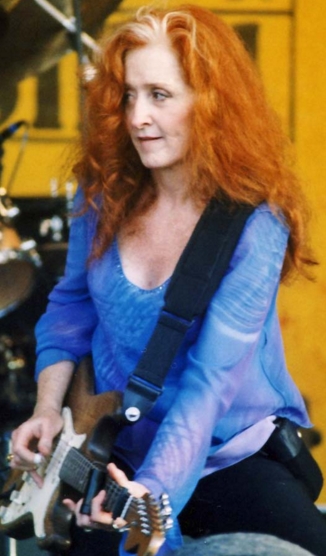
On this date in 1949, blues singer Bonnie Lynn Raitt was born in Burbank, Calif., the daughter of Broadway musical star John Raitt (Curly in “Oklahoma”) and pianist Marjorie Haydock (whose father was a Methodist minister and missionary). Raitt, who got her first guitar for Christmas at age 8, was raised as a Quaker and graduated from Oakwood Friends School before enrolling at Radcliffe College. She became friends with blues promoter Dick Waterman and moved to Philadelphia to start a music career, releasing her eponymous debut album in 1971.
As of this writing in 2019, Raitt has recorded 20 albums (the latest, “Dig in Deep” in 2016) and has received 10 Grammy Awards. Rolling Stone has named her one of the “100 Greatest Singers of All Time” and one of the “100 Greatest Guitarists of All Time. She was inducted into the Rock and Roll Hall of Fame in 2000. Her 2019 touring schedule included opening for James Taylor & His All-Star Band.
Her commitment to social, charitable and political activism includes co-headlining with Jackson Browne and Keb Mo’ the 2004 “Vote For Change” tour, the Musicians United for Safe Energy campaigns against nuclear power and for disaster relief after the 2011 Fukushima reactor meltdown in Japan, and the Bonnie Raitt Guitar Project with Boys and Girls Clubs of America. The project funds music programs in more than 200 clubs serving underprivileged youth.
She co-founded the Rhythm and Blues Foundation, which works to improve royalties, financial conditions and recognition for R&B pioneers. Raitt also holds seats on advisory and honorary boards of Little Kids Rock, Rainforest Action Network, Music Maker Relief Foundation and the Arhoolie Foundation, which preserves vernacular culture. She married actor Michael O’Keefe in 1991. They announced their divorce in 1999.
In 2022, Raitt’s studio album “Just Like That…” was released and coincided with the start of a nationwide tour. The single “Made Up Mind” from the album won Song of the Year at the 65th annual Grammy Awards in 2023.
PHOTO: Masahiro Sumori photo; CC 3.0.
CBS INTERVIEWER: I get a sense that gratitude is very important to you.
RAITT: That’s true. I don’t think anybody’s ever mentioned that before. But I think it’s probably the closest thing to religion that I have, is just being grateful.— CBS "Sunday Morning" (April 17, 2016)
Rodney Dangerfield
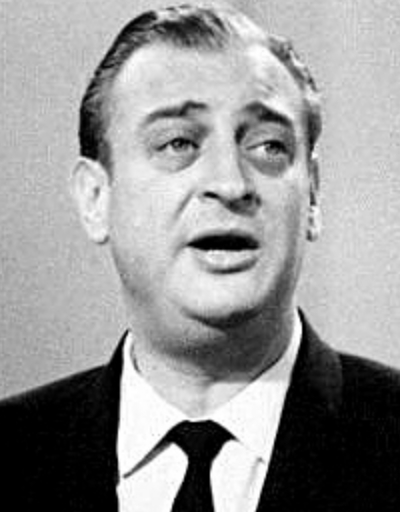
On this date in 1921, Rodney Dangerfield (né Jacob Rodney Cohen) was born in Babylon, Long Island, N.Y., to Jewish parents. His father was largely absent from the home. Dangerfield began performing comedy when he was 17, paving the way for his stand-up routines in the Borscht Belt in upstate New York at age 19, when he changed his legal name to Jack Roy. (His father had performed vaudeville as Phil Roy.) He married singer Joyce Indig in 1949 and they had two children. Wanting a different life than what their level of show business provided, they settled in Englewood, N.J., to raise their two children. He worked at various jobs, including selling paint and aluminum siding.
They divorced in 1962, remarried a year later and divorced again. At age 42 he started rehabilitating his comedy act, taking the Dangerfield stage name, with his big break in 1967 as a last-minute replacement on “The Ed Sullivan Show.” He appeared on the Sullivan show seven times and over 70 times on “The Tonight Show” with Johnny Carson as he honed his act with its deprecating one-liners, in particular his catchphrase “I get no respect.”
He stopped touring in 1969 to operate the comedy club Dangerfield’s, while raising his children after his ex-wife died. He later headlined shows in Las Vegas and landed roles in the films “Caddyshack” (1980), “Easy Money” (1983), “Back To School” (1986), “Natural Born Killers” (1994) and others. He won a 1981 Grammy Award for his album “No Respect” and received comedy achievement and creative awards in the late 1990s and early 2000s. In 1993 he married Joan Child, a flower importer. His 2004 autobiography was titled It’s Not Easy Bein’ Me: A Lifetime of No Respect but Plenty of Sex and Drugs.
He called himself an atheist during a May 2004 interview with Howard Stern, adding that he was a “logical” atheist. He died several months later at age 82 at the UCLA Medical Center of complications after heart surgery and spending several weeks in a coma. His headstone reads “Rodney Dangerfield … There goes the neighborhood.” (D. 2004)
PHOTO: Dangerfield performing in 1972.
“We’re apes — do apes go anyplace [when they die]?”
— Dangerfield, Howard Stern radio show (May 25, 2004)
Billy Connolly
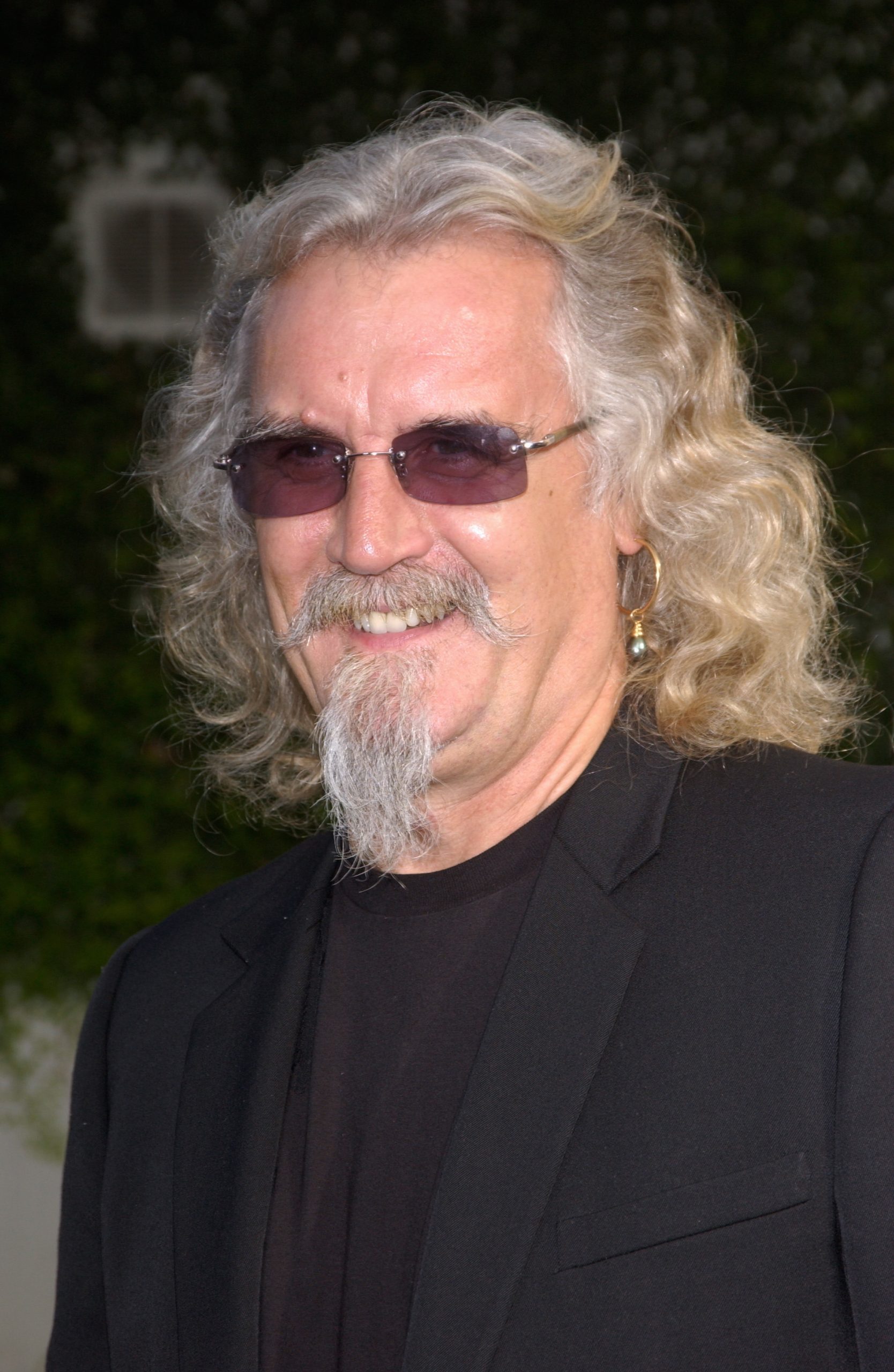
On this date in 1942, Billy Connolly was born in Glasgow, Scotland. His early years were difficult; his mother abandoned him and his sister Florence when Connolly was 4 and their father was away with the army. In the 2001 biography Billy, written by Connolly’s second wife, Pamela Stephenson, Connolly described being sexually abused by his father between the ages of 10 and 15. Connolly was raised Catholic and blames the Catholic Church’s prohibition of divorce, at least in part, for his sexual abuse. After high school graduation he worked as a welder in a shipyard.
In the mid-1960s he started performing as a folk singer in the duo “The Humblebums.” After the breakup of the duo, Connolly began to perform solo and transitioned from a singer who told long comedic stories to a comedian who sometimes sang funny songs. Connolly’s comedy became very popular throughout Britain in the mid-1970s. In 1969 he had married Iris Pressagh and they had two children. Connolly’s involvement with show business and his problems with drugs and alcohol ended the marriage in 1985. He married Stephenson in 1989 after they had three daughters together.
In 1990, after featuring in an HBO standup special with Whoopi Goldberg, his popularity in America grew. He was cast in the sitcom “Head of the Class” in the 1990-91 season and moved with his family to Los Angeles. Connolly has since been featured as a character actor in many television and movie productions, as well as continuing his career as a comedian. Much of his comedy is idiosyncratic and irreverent. He uses profanity freely and jokes about many of the more difficult, abusive experiences of his childhood. He also takes many potshots at religion, especially Catholicism.
“I don’t like religion. I think religion is a con.”
— Connolly to The SunBreak online magazine in Seattle (March 18, 2010)
Bill Nye
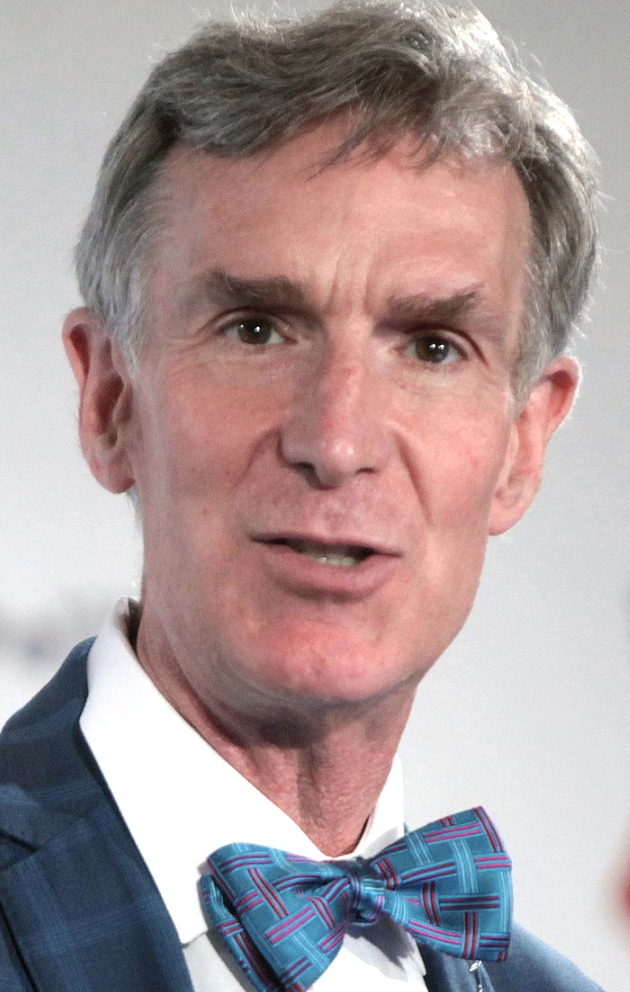
On this date in 1955, William Sanford “Bill” Nye was born in Washington, D.C., where he was also raised. Nye, “America’s stand-up scientist,” says on his website that his parents fostered his interest in science. His father was a prisoner of war during World War II and his mother was a Navy codebreaker who excelled in math and science. In 1977 Nye earned a degree in mechanical engineering from Cornell University, where one of his professors was Carl Sagan. He then moved to Seattle to work as an engineer at Boeing.
Nye invented a special sundial used during the Mars Exploration Rover mission and engineered a hydraulic device for Boeing still used on the 747. During this time, Nye cultivated his comedy style, working nights as a stand-up comic and eventually quitting Boeing to work as a comedy writer and performer. He founded the educational television series “Bill Nye the Science Guy” (1993-98). The show won 18 Emmys in its five-year run.
Nye has written two best-selling books on science: Undeniable: Evolution and the Science of Creation in 2014 and Unstoppable: Harnessing Science to Change the World in 2015. Nye has appeared on “Dancing With the Stars,” “The Big Bang Theory,” “Inside Amy Schumer” and in a documentary about his life and science advocacy titled “Bill Nye: Science Guy,” which premiered at the South by Southwest Film Festival in March 2017 in Austin, TX. In 2017 he debuted the Netflix series “Bill Nye Saves the World.”
Nye was married in 2006 by Saddleback Church pastor Rick Warren to classical musician Blair Tindall but the union was annulled after less than a year. Nye in 2017 revealed his family’s history of ataxia, a neurological condition affecting coordination, saying he chose not to have children to avoid passing on the genetic condition.
PHOTO: Nye speaking at Politicon in 2016 in Pasadena, Calif. Gage Skidmore photo. CC 3.0.
“[I]t’s fine if you as an adult want to run around pretending or claiming that you don’t believe in evolution, but if we educate a generation of people who don’t believe in science, that’s a recipe for disaster. … The main idea in all of biology is evolution. To not teach it to our young people is wrong.”
— "Science Guy Bill Nye Explains Why Evolution Belongs in Science Education," Popular Mechanics (Feb. 4, 2011)
Frank Sinatra (Quotes)
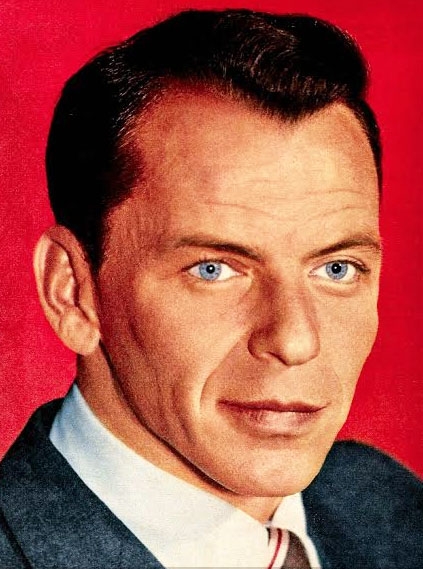
“There are things about organized religion which I resent. Christ is revered as the Prince of Peace, but more blood has been shed in His name than any other figure in history. You show me one step forward in the name of religion and I’ll show you a hundred retrogressions. Remember, they were men of God who destroyed the educational treasures at Alexandria, who perpetrated the Inquisition in Spain, who burned the witches at Salem.* Over 25,000 organized religions flourish on this planet, but the followers of each think all the others are miserably misguided and probably evil as well. In India they worship white cows, monkeys and a dip in the Ganges. The Moslems accept slavery and prepare for Allah, who promises wine and revirginated women. And witch doctors aren’t just in Africa. If you look in the L.A. papers of a Sunday morning, you’ll see the local variety advertising their wares like suits with two pairs of pants.”
“As I see it, man is a product of his conditioning, and the social forces which mold his morality and conduct — including racial prejudice — are influenced more by material things like food and economic necessities than by the fear and awe and bigotry generated by the high priests of commercialized superstition. Now don’t get me wrong. I’m for decency — period. I’m for anything and everything that bodes love and consideration for my fellow man. But when lip service to some mysterious deity permits bestiality on Wednesday and absolution on Sunday — cash me out.”
— Sinatra, born on this date in 1915. (Interview, Playboy magazine, February 1963)
*EDITOR’S NOTE: There is no evidence that alleged witches were burned in North America. That did happen in Europe, however. Sinatra’s claims about more people being killed in Jesus’ name is also unsubstantiated, although certainly millions have been. Likewise, it’s not been demonstrated that Muslims supported slavery more than Christians or some other religions.
—
John Davidson
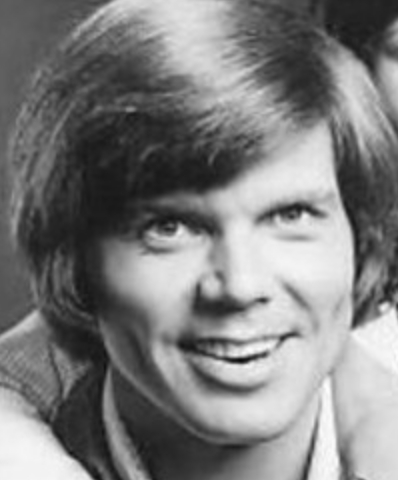
On this date in 1941, entertainer John Hamilton Davidson was born to two ordained Baptist ministers in Pittsburgh. After graduating from high school in White Plains, N.Y., he earned a B.A. in theater arts after first majoring in philosophy at Denison University in Granville, Ohio.
He got his start on Broadway in the 1964 musical “Foxy” and won a Theater World Award in 1965 for his role as “Curly” in “Oklahoma!” He landed roles in several Disney movies, which led to other Hollywood and television roles. He recorded 12 albums in the 1960s and ’70s, five of which reached the Billboard 200 album charts.
He was a regular on “Hollywood Squares,” performed in Las Vegas, guest-hosted “The Tonight Show” 87 times and hosted a revival of “The $100,000 Pyramid” in 1991. He continued to perform theatrically and played The Wizard in 2013 in the touring Broadway musical “Wicked.” He’s since been entertaining in Branson, Mo., and elsewhere as a troubadour and storyteller.
He married singer Jackie Miller in 1969. They divorced in 1982 and have a son, John Jr., and daughter, Jennifer. He married singer Rhonda Rivera in 1983 and they have a daughter, Ashleigh. In a January 2020 piece in New Hampshire Magazine, he wrote about moving there and enjoying its “sense of freedom, individualism, self-reliance and, yes, healthy skepticism. Being a progressive, I of course came here in search of other progressive liberals, but I’ve also encountered open-minded conservatives who have been an inspiration.”
Davidson in 2015 joined Openly Secular, a coalition of freethought groups started by the Center for Inquiry. He spoke at the Reason Rally in Washington, D.C., in 2016 and appeared in 2020 on FFRF’s “Freethought Matters” TV talk show about the harm Christianity has done in countries like Mexico, where he lived for a while: “I would see these poor, poor Mexican people come in and light a candle and give their last couple of pesos to the church, which has billions of dollars in Rome.”
He said in a 2020 interview with Broadway World that he started questioning his faith in college: “My sophomore year I was a philosophy major and my first two courses were comparative religions of the world. You study all the religions of the world, everyone’s approach to what they think god is or that thing in the atmosphere, whatever. And the other course was logic one 0 four. And if you take logic and try to apply it to religion, it just doesn’t work! So that was the beginning of my journey towards atheism.”
PHOTO: Davidson in 1973 on the set of “The Girl With Something Extra,” co-starring Sally Field; public domain photo.
“I think we should all be doubting Thomases. I think it’s good to be skeptical and question everything. Question everything!”
— Interview, Broadway World (May 8, 2020)
Paul Winchell
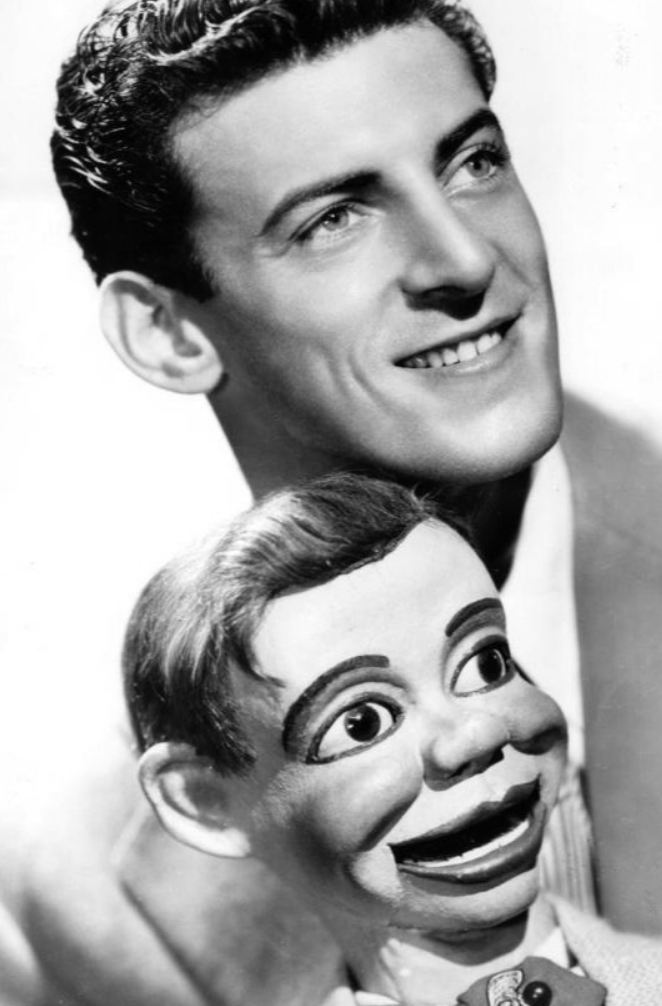
On this date in 1922, Paul Winchell (né Wilchinsky) was born to Jewish parents in New York City. He contracted polio at age 13 and became interested in ventriloquism, a field in which he showed considerable talent, appearing on popular children’s television shows “The Paul Winchell Show” (1950-54) and “Winchell-Mahoney Time” (1965-68). He was also a voice actor, most notably providing the voice of Tigger for the television show “Winnie the Pooh” (1968-99).
Winchell’s voice was also used in “The Fox and the Hound” (1981) and “The Smurfs” (1984-86) and he appeared as a guest on shows such as “The Beverly Hillbillies” (1962) and “The Brady Bunch” (1971). In 1974 he won a Grammy for best children’s recording for his voice acting in “Winnie the Pooh and Tigger Too.”
Winchell was also an inventor with 30 patents, including a prototype of the first artificial heart in 1963, which was used for research at the University of Utah. His books include Ventriloquism for Fun and Profit (1954) and his autobiography Winch (2004). He was married three times and had three children.
In 1982 he published God 2000: Religion Without the Bible, which discussed bible contradictions and disputed the existence of a biblical god. He wrote, “It is essential to understand that true freedom of Religion must include freedom from Religion.” But he also expressed deist views in his 2004 book Protect God, published the year before his death at age 82. (D. 2005)
PHOTO: Winchell with puppet Jerry Mahoney in 1951; James Kriegsmann public domain photo.
“It is my contention that no other invention of man has brought greater chaos to humanity than the practice of religion.”
— Winchell, "God 2000: Religion Without the Bible" (1982)
Rod Serling
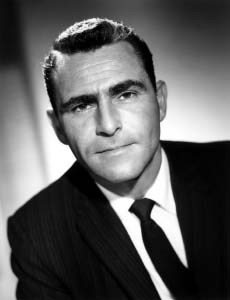
On this date in 1924, Rodman Edward Serling was born in Syracuse, N.Y. He enlisted in the U.S. Army in 1942, served in the Philippines and Japan and was discharged in 1945. He went on to graduate from Antioch College in Ohio in 1950 with a B.A. in English literature and drama, where he began writing scripts for radio programs. He met Carolyn Kramer at Antioch in 1948 and they had two daughters, Jodi and Anne. He also joined a Unitarian church at Antioch.
Serling started working as a radio and television writer, eventually landing in New York City. “Kraft Television Theatre” aired Serling’s 72nd script, “Patterns,” in 1955 and it won him an Emmy. Two more Emmys soon followed, in 1956 for “Requiem for a Heavyweight,” which was adapted into a film in 1962, and “The Comedian” (1958), both episodes of the show “Playhouse 90.” Serling is most famous for hosting “The Twilight Zone” (1959–64), as well as writing 92 of its 156 scripts.
He was passionate about social issues, opposing war, racism and capital punishment, and he often addressed these controversial topics in scripts for “The Twilight Zone.” Serling won two more Emmy Awards in 1960 and 1961 for outstanding writing in drama for his work on “The Twilight Zone,” as well as a 1963 Golden Globe Award for best television producer. His other work includes writing the script for the films “Planet of the Apes” (1968), “The Yellow Canary” (1963) and “Seven Days in May” (1964). He hosted and contributed scripts to the series “Night Gallery” from 1970-73.
He was a heavy smoker and died at age 50 after his third heart attack. (D. 1975)
“Theologically speaking, Rod was what we call a naturalistic humanist, and that was the underlying philosophy of my pulpit. Racial issues, class, power — you find all of these in his writings, and he found reinforcements for his viewpoints in his congregation.”
— Pastor Ernest Pipes, Unitarian Universalist Community Church of Santa Monica, Calif., which Serling attended. (uuworld.org, Nov. 1, 2007)
Paula Poundstone
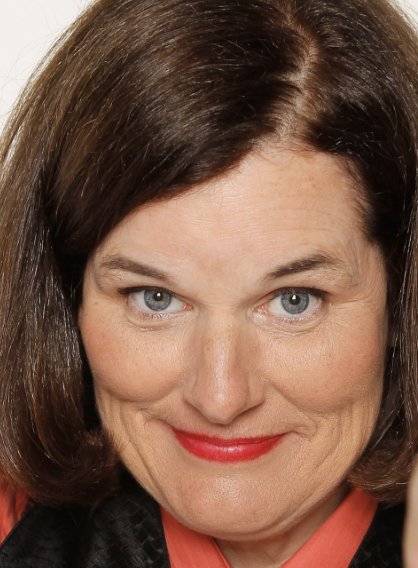
On this day in 1959, Paula Poundstone was born in Huntsville, Ala. She dropped out of high school at 17 and began her career as a stand-up comedian when she was 19. She entered the public eye after appearing on shows such as “The Tonight Show,” “Late Night with David Letterman” and “Saturday Night Live.” She was awarded the 1989 American Comedy Award for Best Female Stand-up and became the first woman to be awarded the Cable ACE Award for best comedy special for her first HBO performance, “Cats, Cops, and Stuff” (1990).
She gained a second Cable ACE Award for her talk show, “The Paula Poundstone Show” (1993). Poundstone wrote a monthly column for Mother Jones (1993-98), published the book There’s Nothing In This Book That I Meant To Say (2006) and has been a panelist for quiz program “Wait Wait … Don’t Tell Me” on NPR.
“There is no God. At least, I’m practically certain there isn’t. I don’t believe there’s a heaven or a hell either,” Poundstone, a self-described atheist, wrote in an article for the May/June 1994 issue of Mother Jones.
In 2016 she voiced the character “Forgetter Paula” in Disney/Pixar’s Academy Award-winning animated feature film “Inside Out.” Later that year, her first double-live CD, “North By Northwest,” debuted at No. 1 on two Amazon lists. Her second book, The Totally Unscientific Study of the Search for Human Happiness, was published in 2017.
Poundstone has fostered eight children and adopted two daughters and a son. She told EDGE online (Aug. 21, 2013) that she’s asexual: “I don’t like sex. Therefore, I don’t have sex. It frees up time, but that’s not by design, it’s just a bonus.”
In 2018 she was a recipient of an FFRF Emperor Has No Clothes Award and spoke at the national convention in San Francisco.
“I’m an atheist. The good news about atheists is that we have no mandate to convert anyone. So you’ll never find me on your doorstep on a Saturday morning with a big smile, saying, ‘Just stopped by to tell you there is no word. I brought along this little blank book I was hoping you could take a look at.’ ”
— Poundstone, "There's Nothing in This Book That I Meant to Say" (2006)
